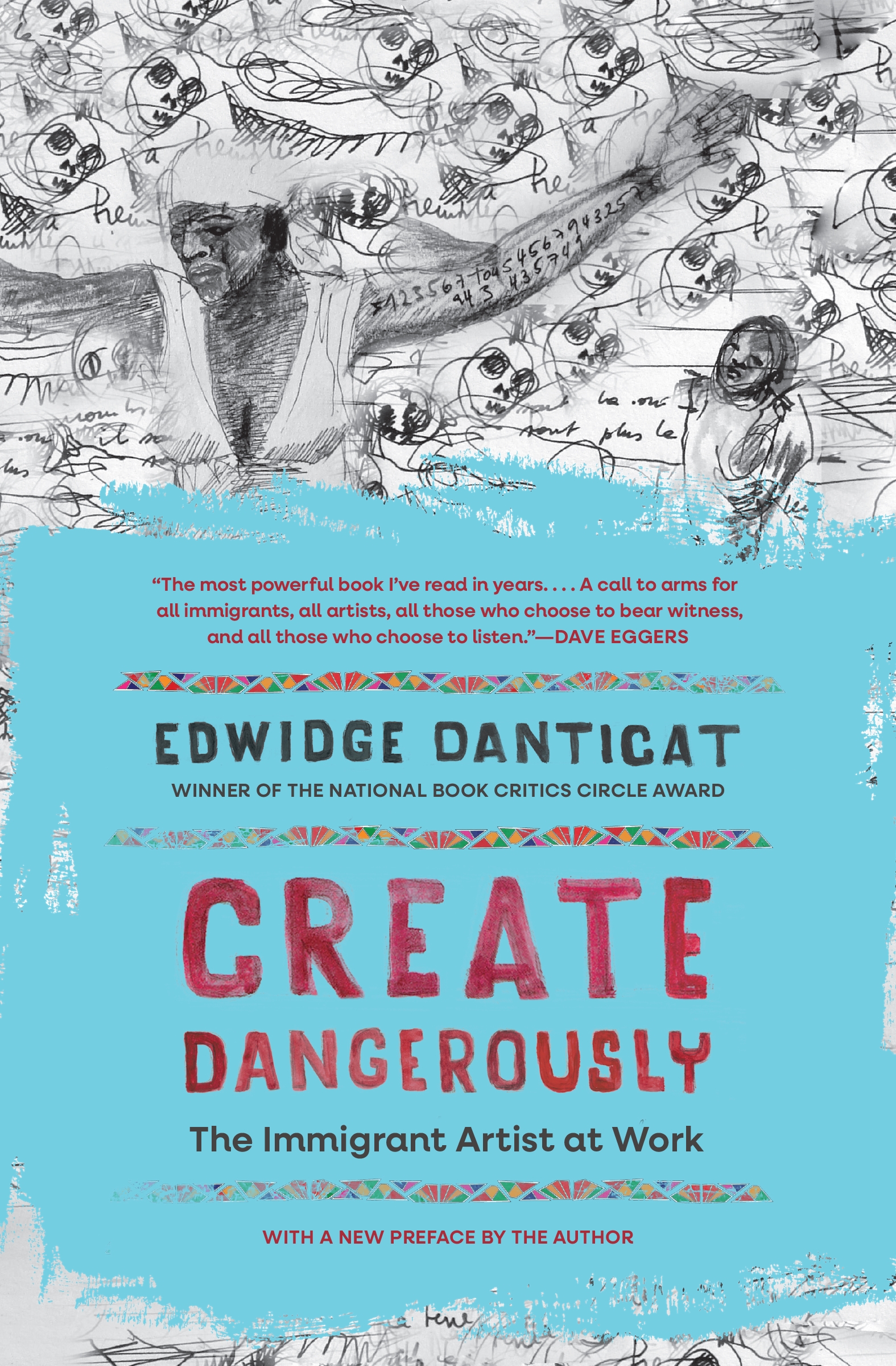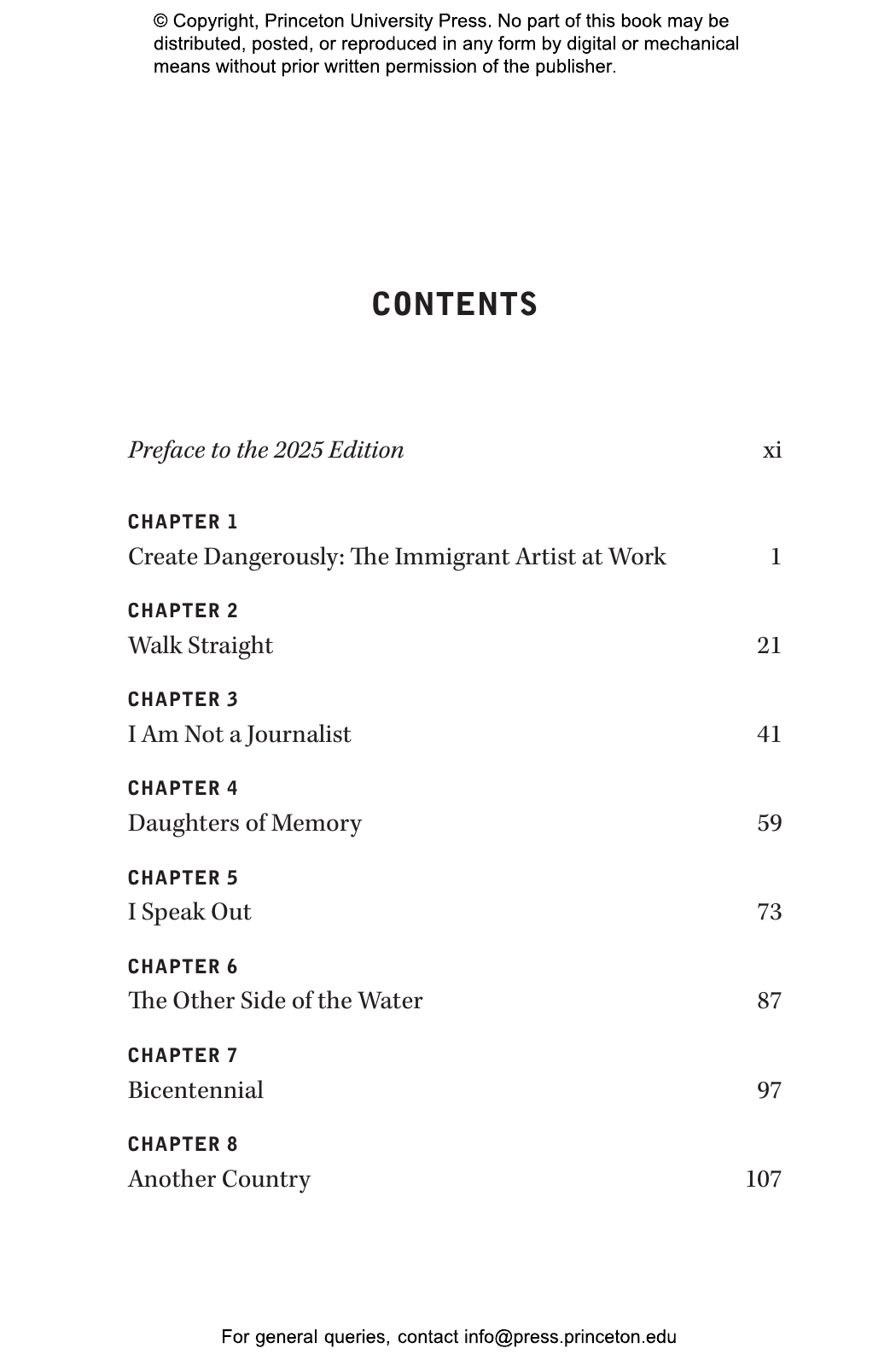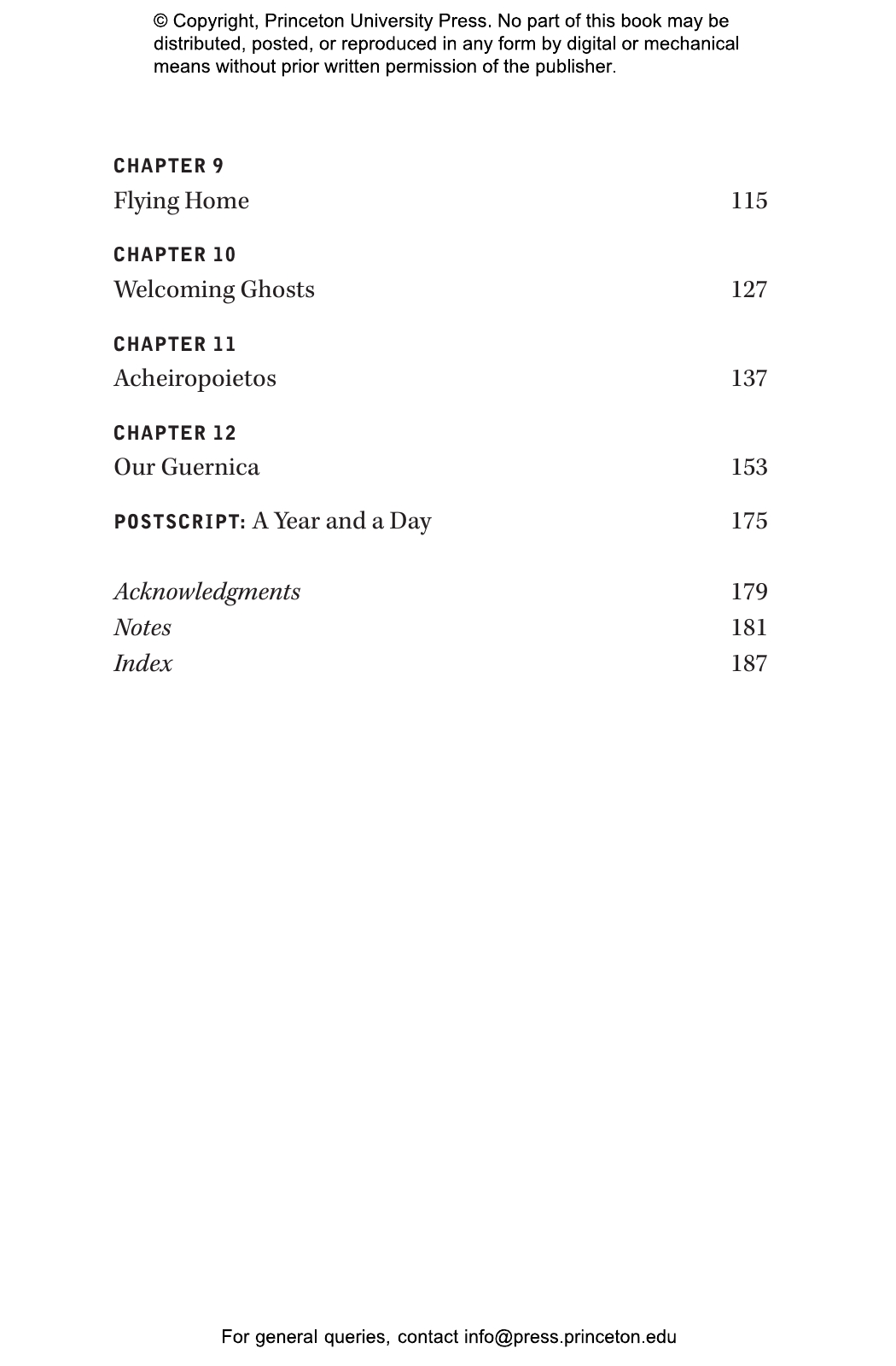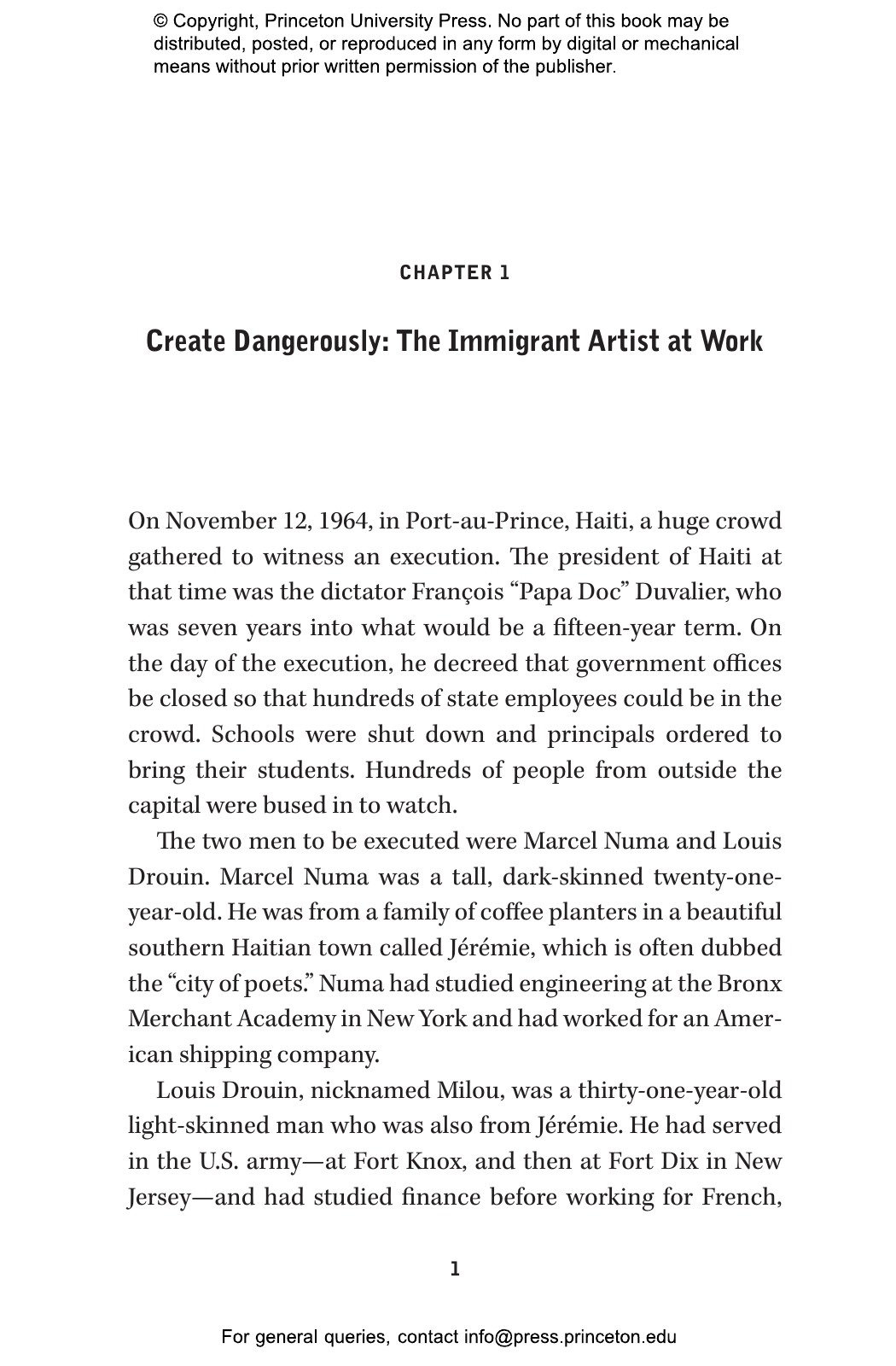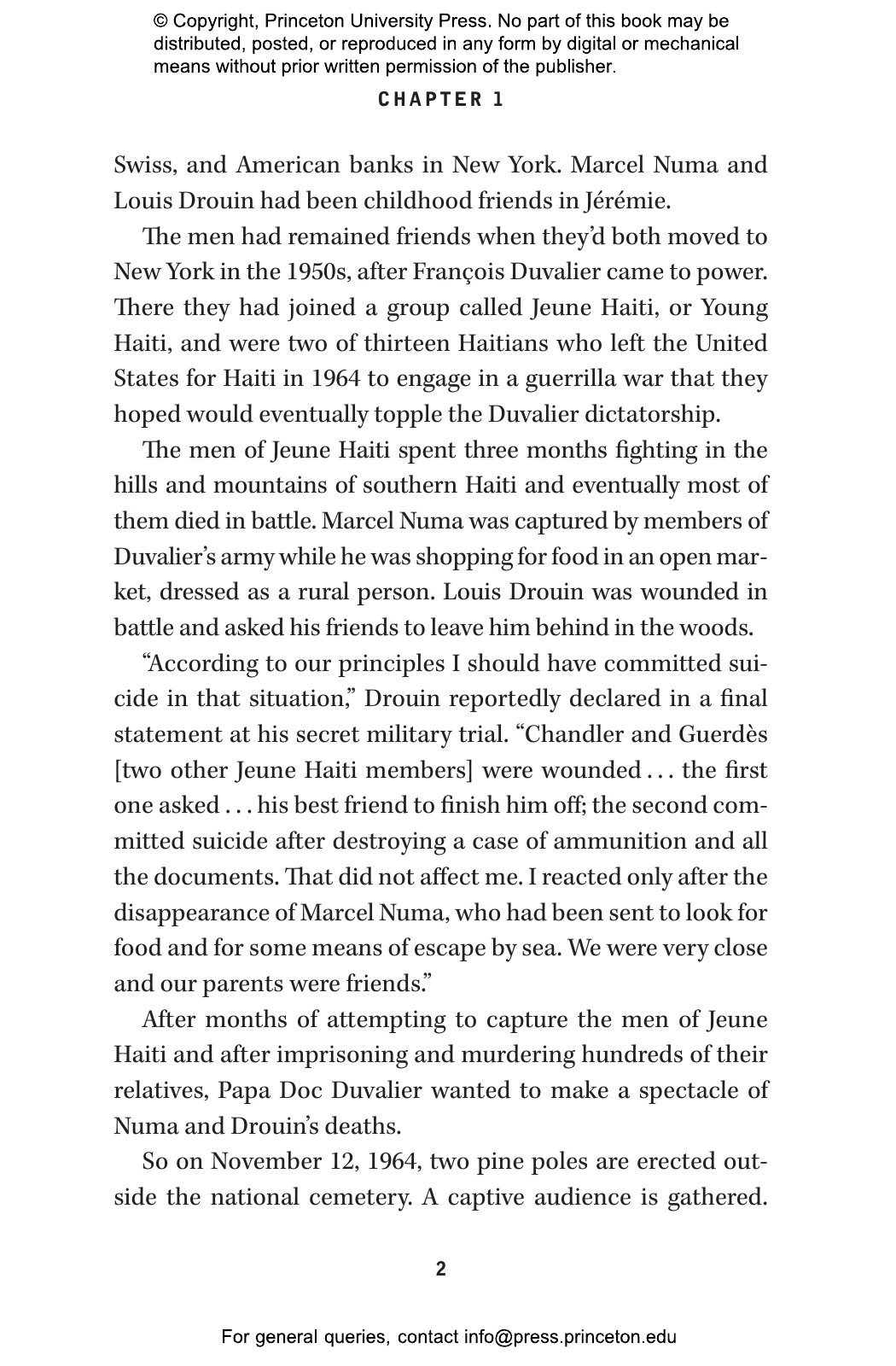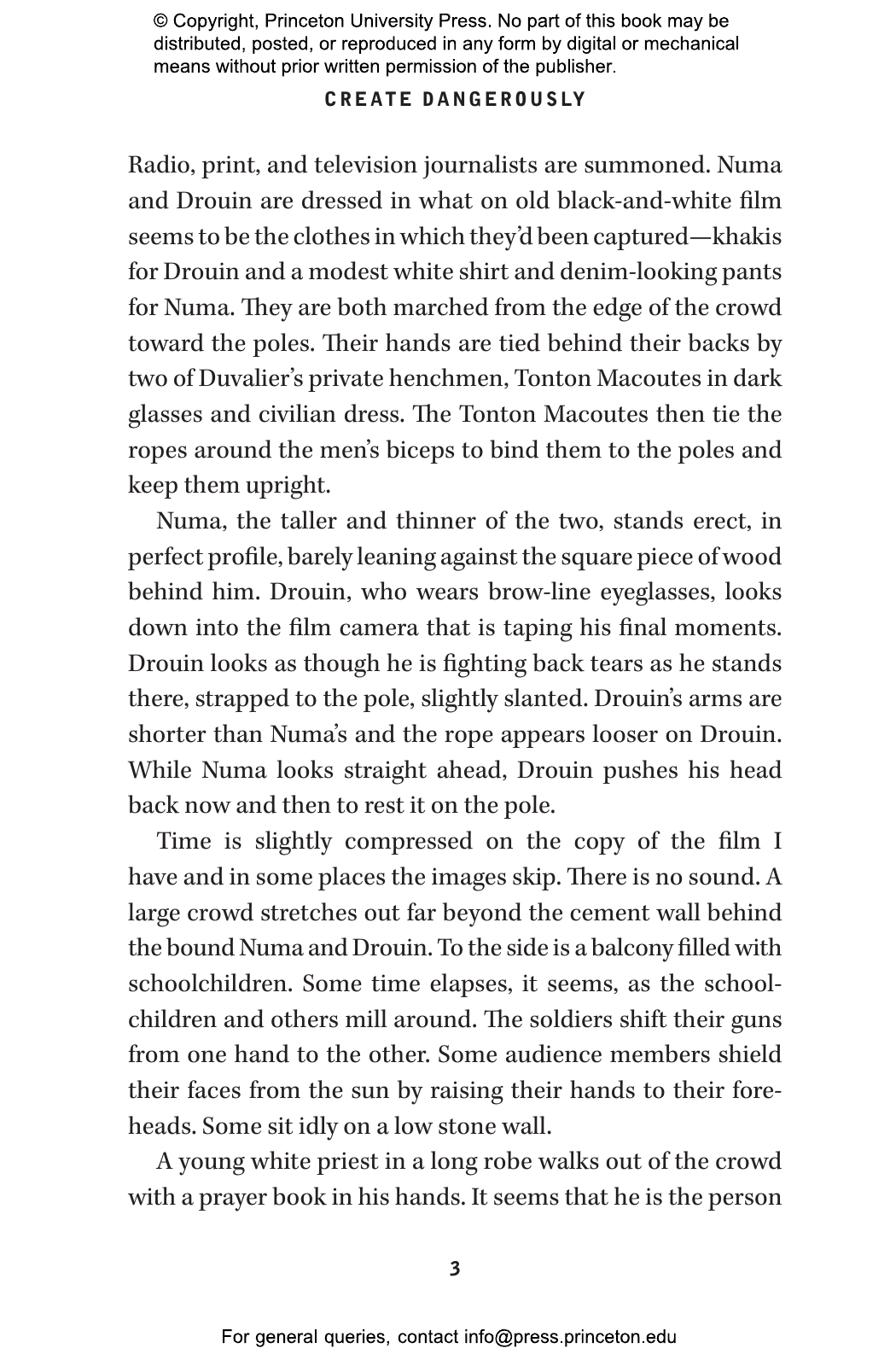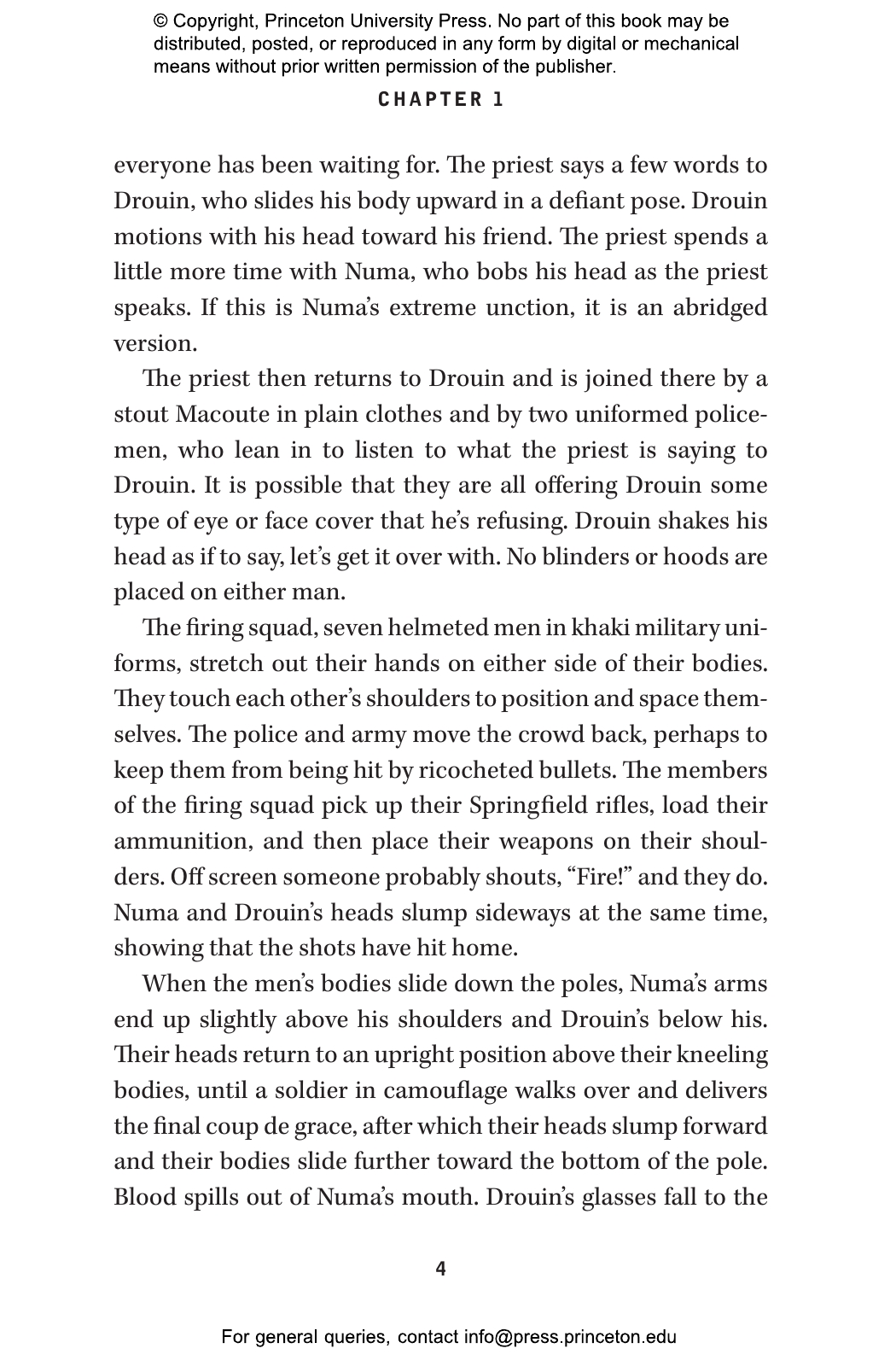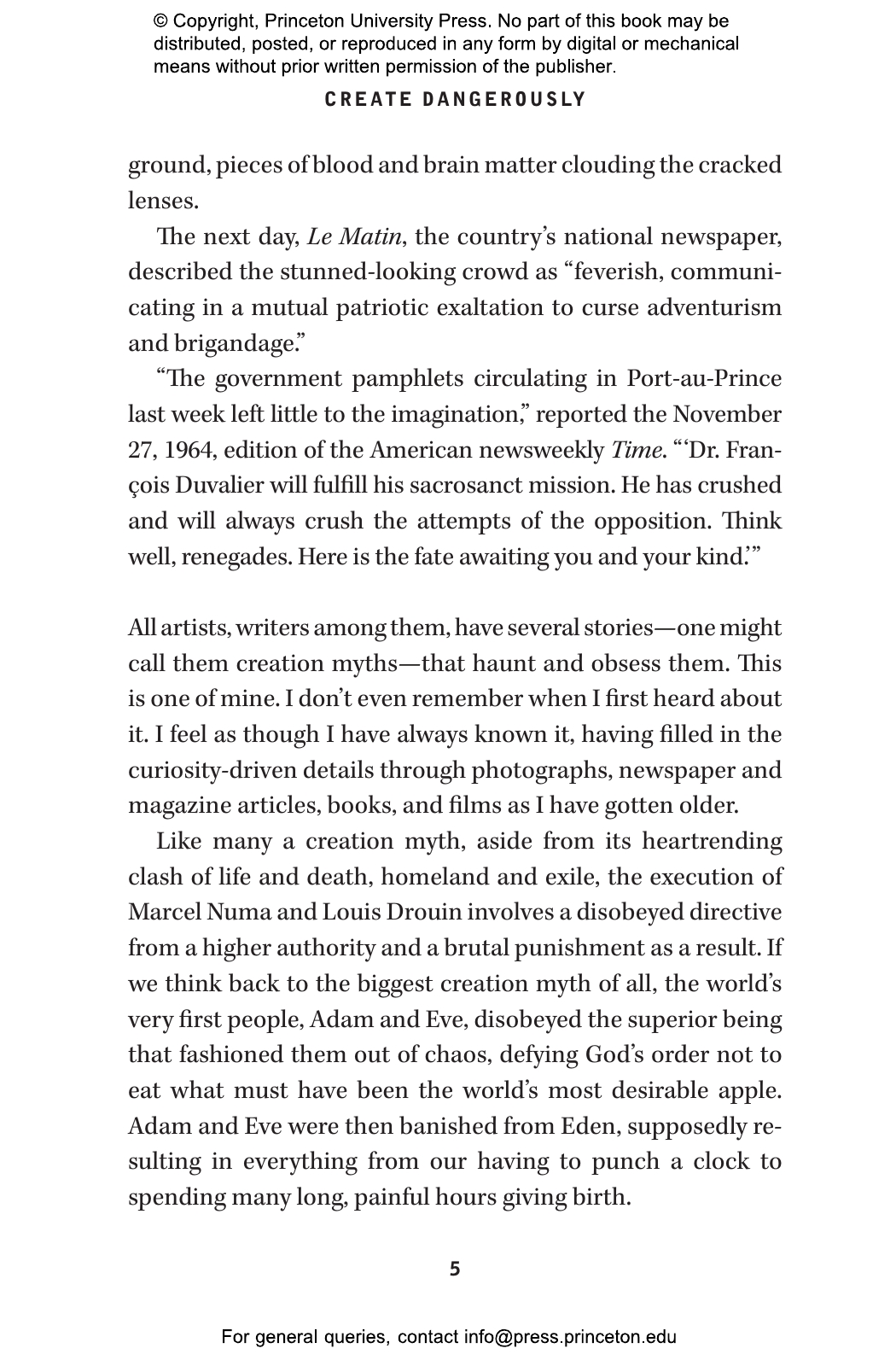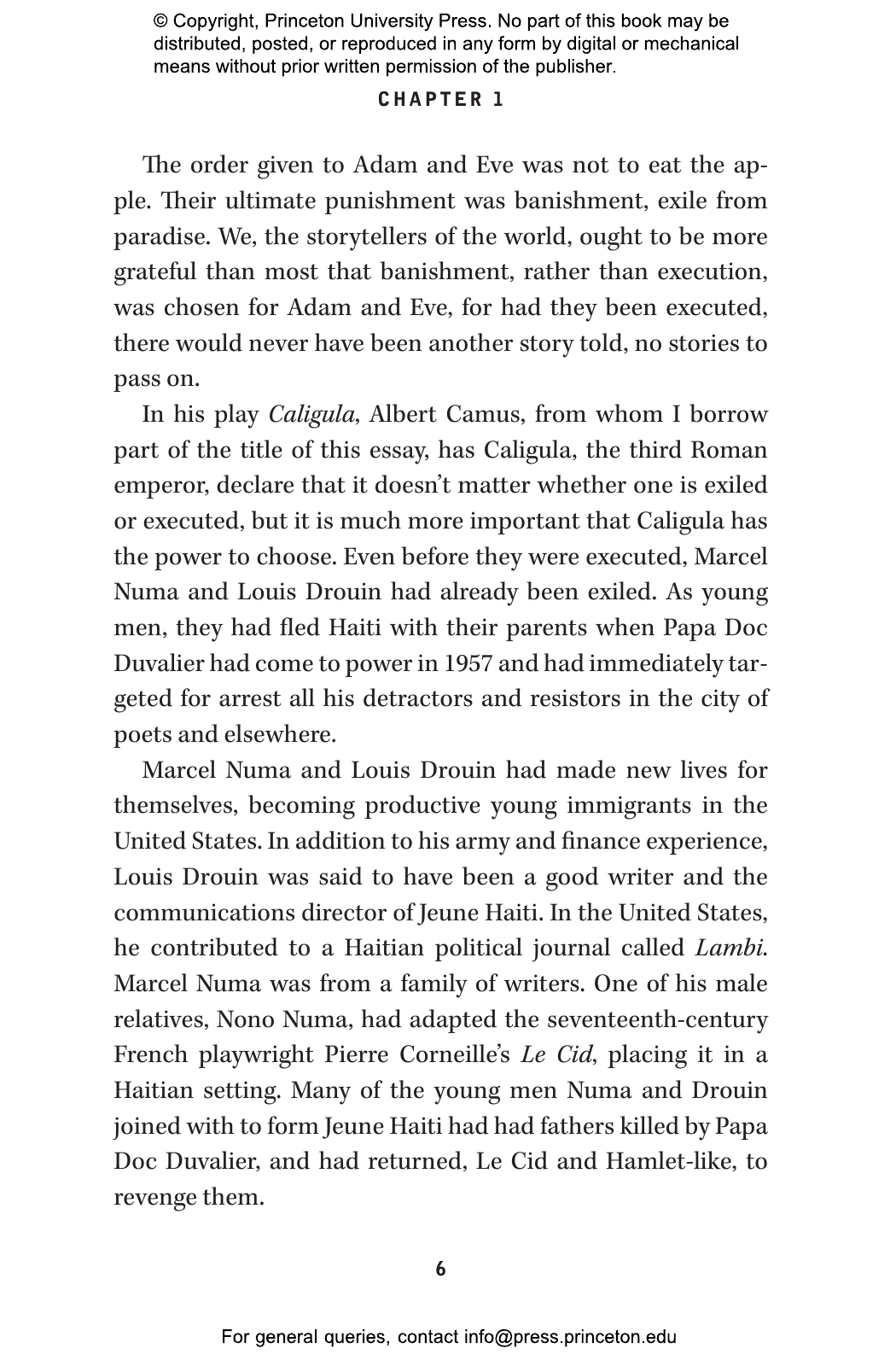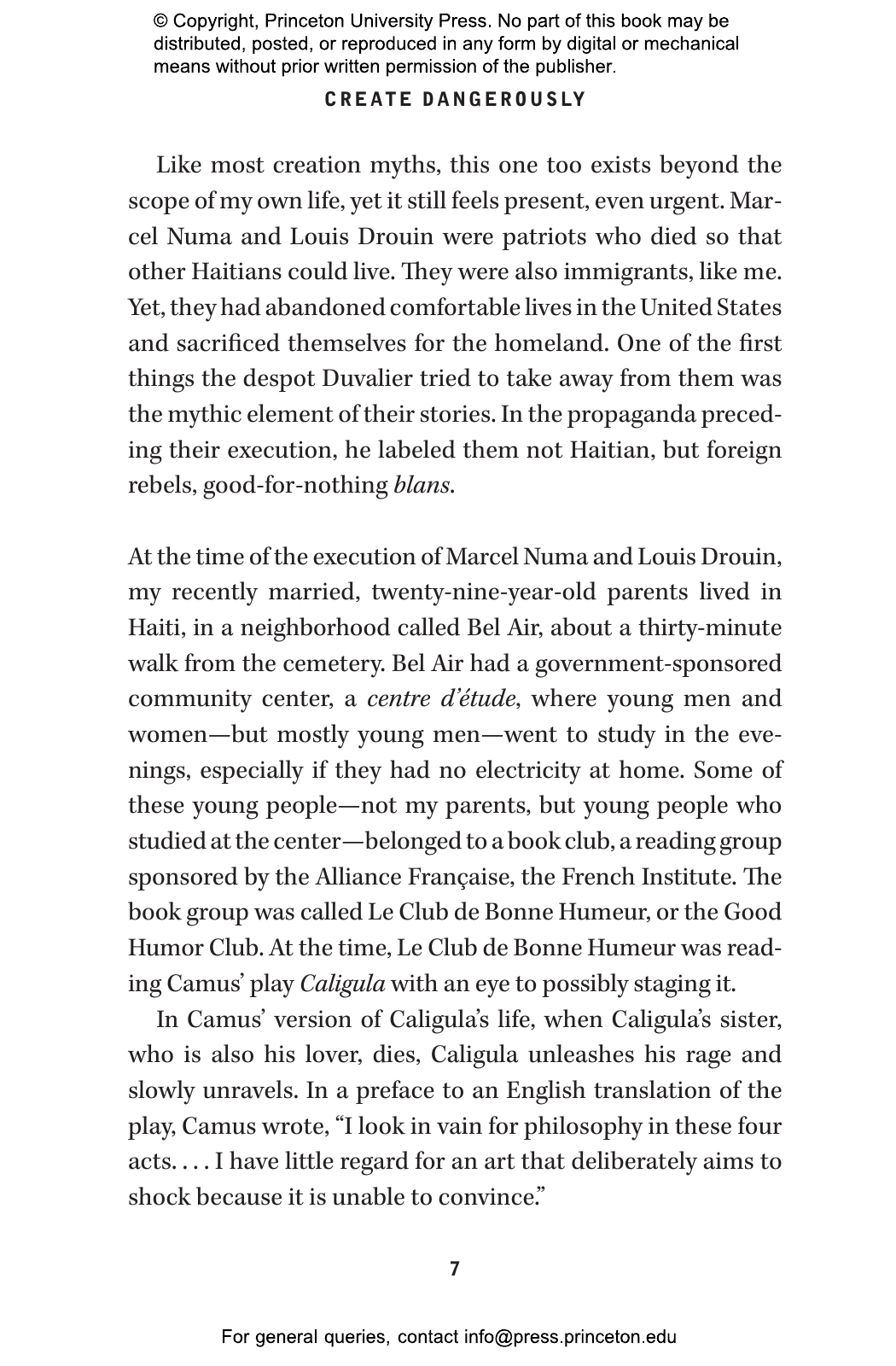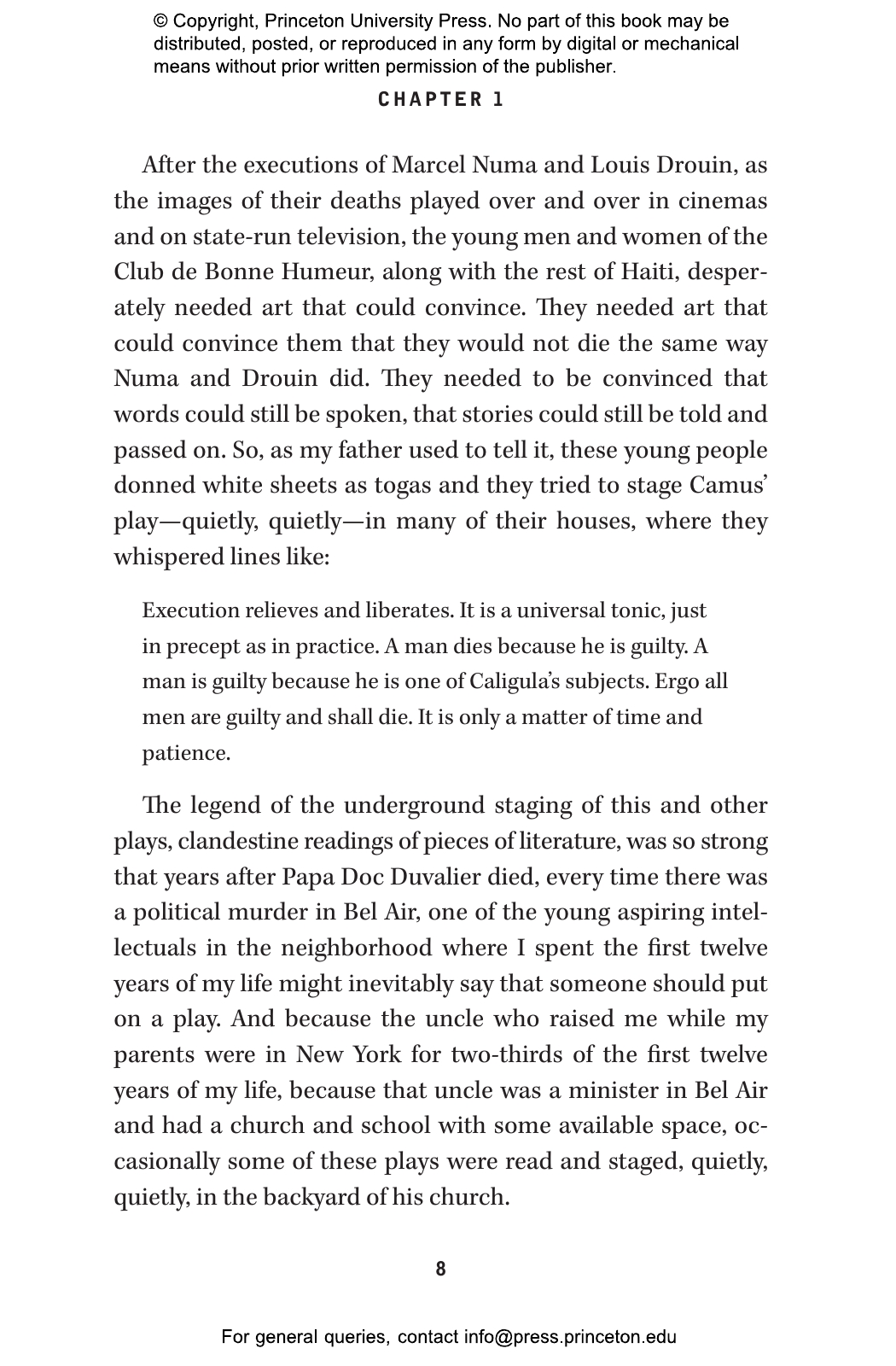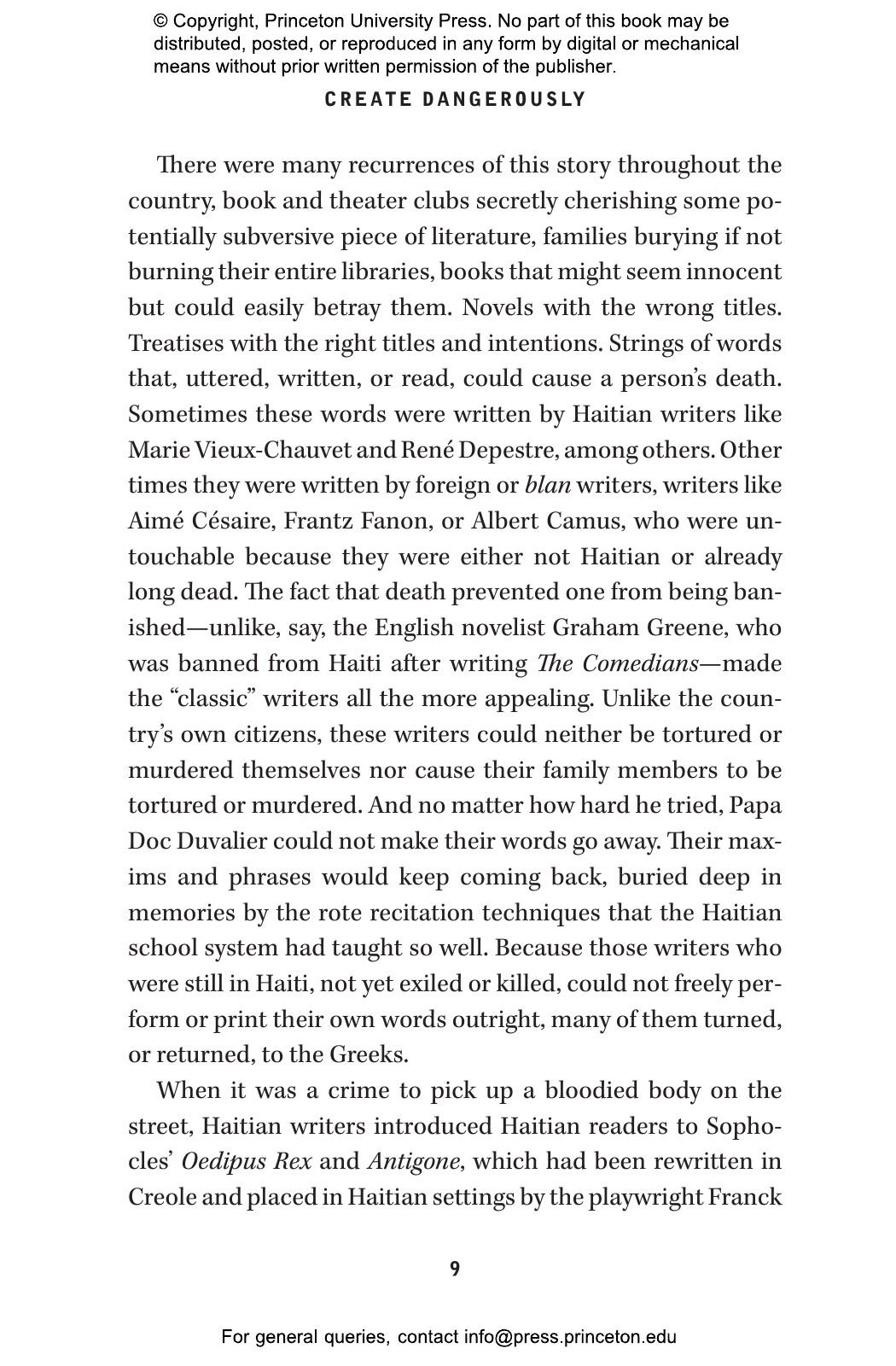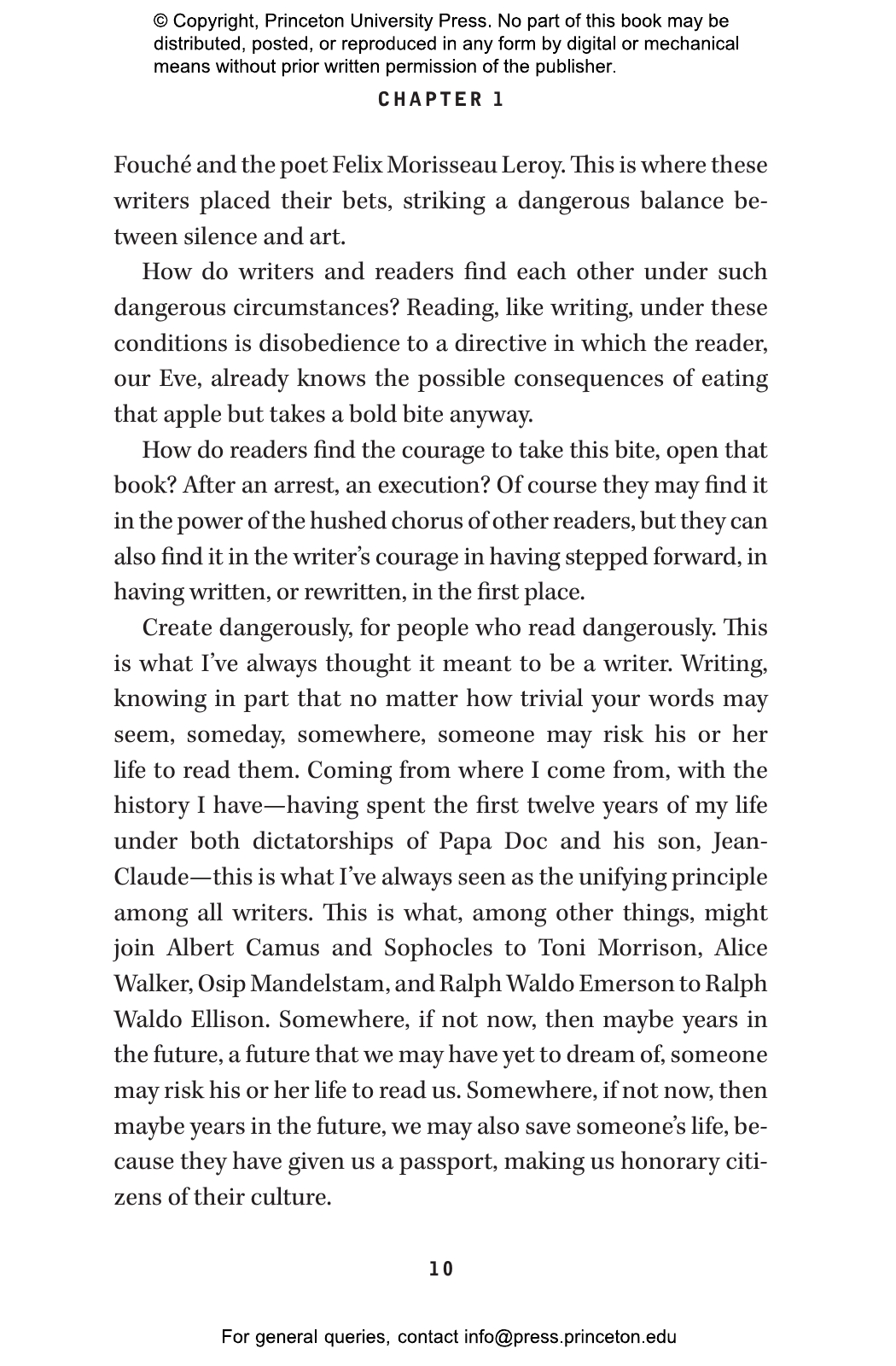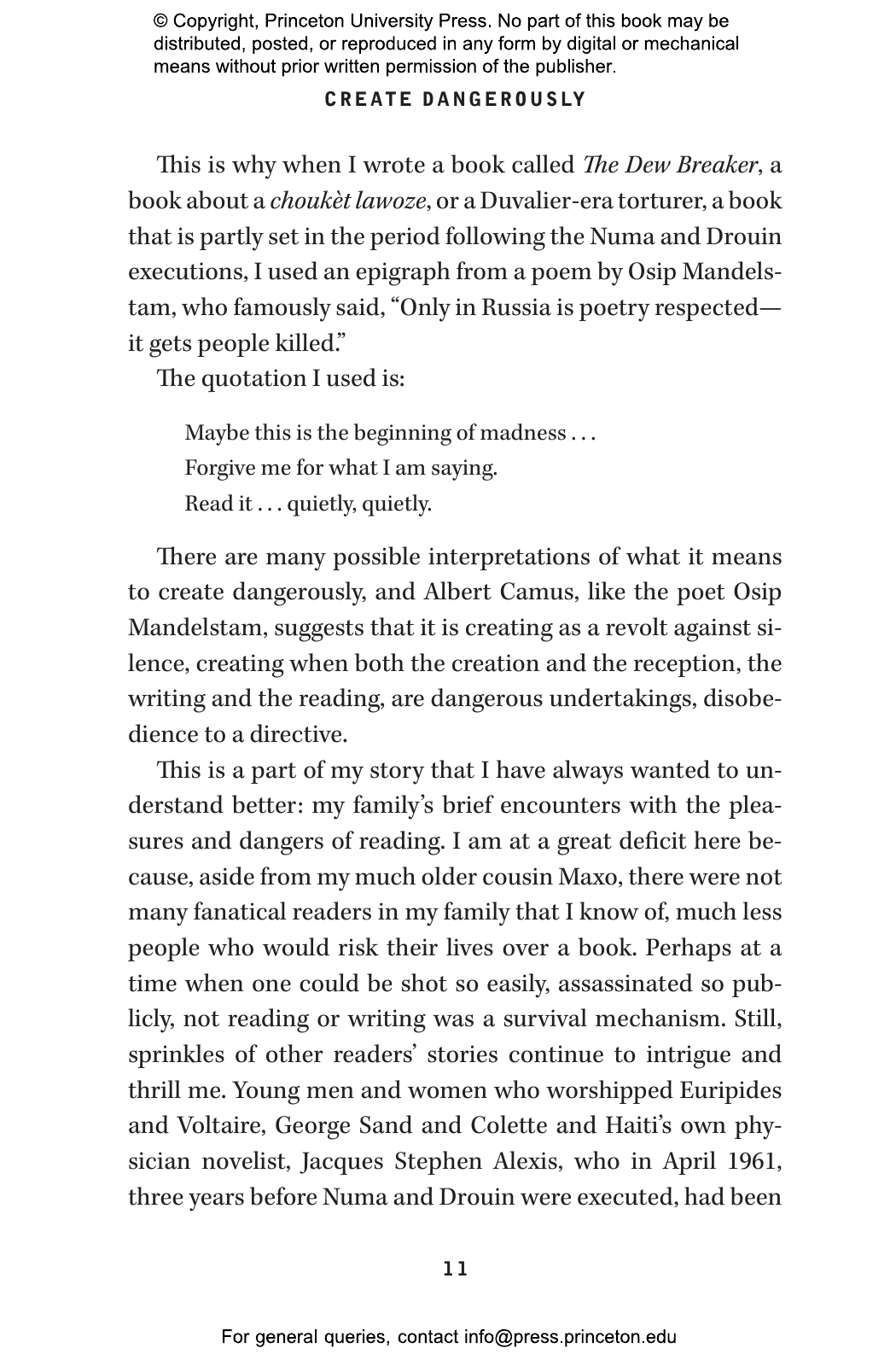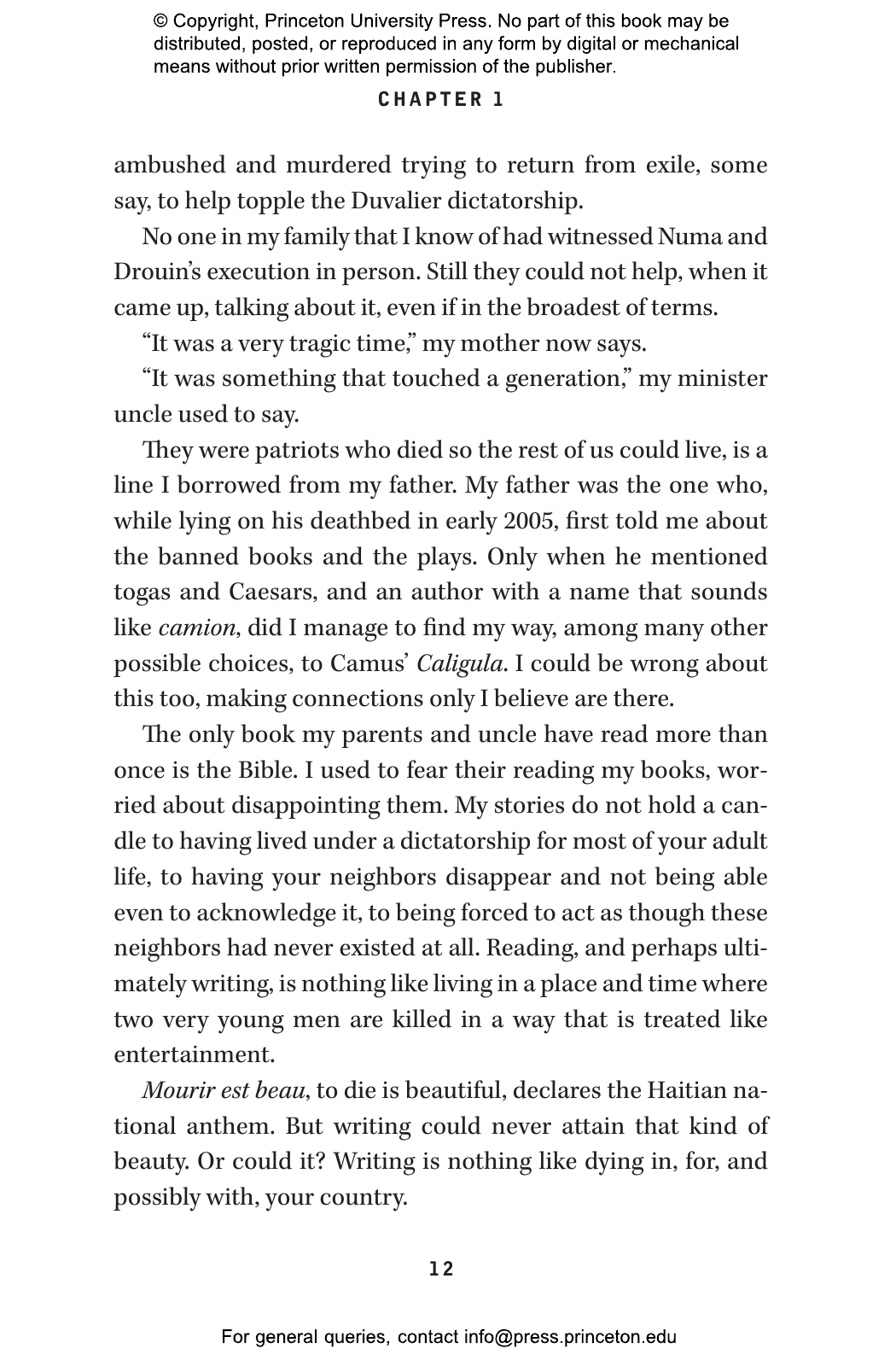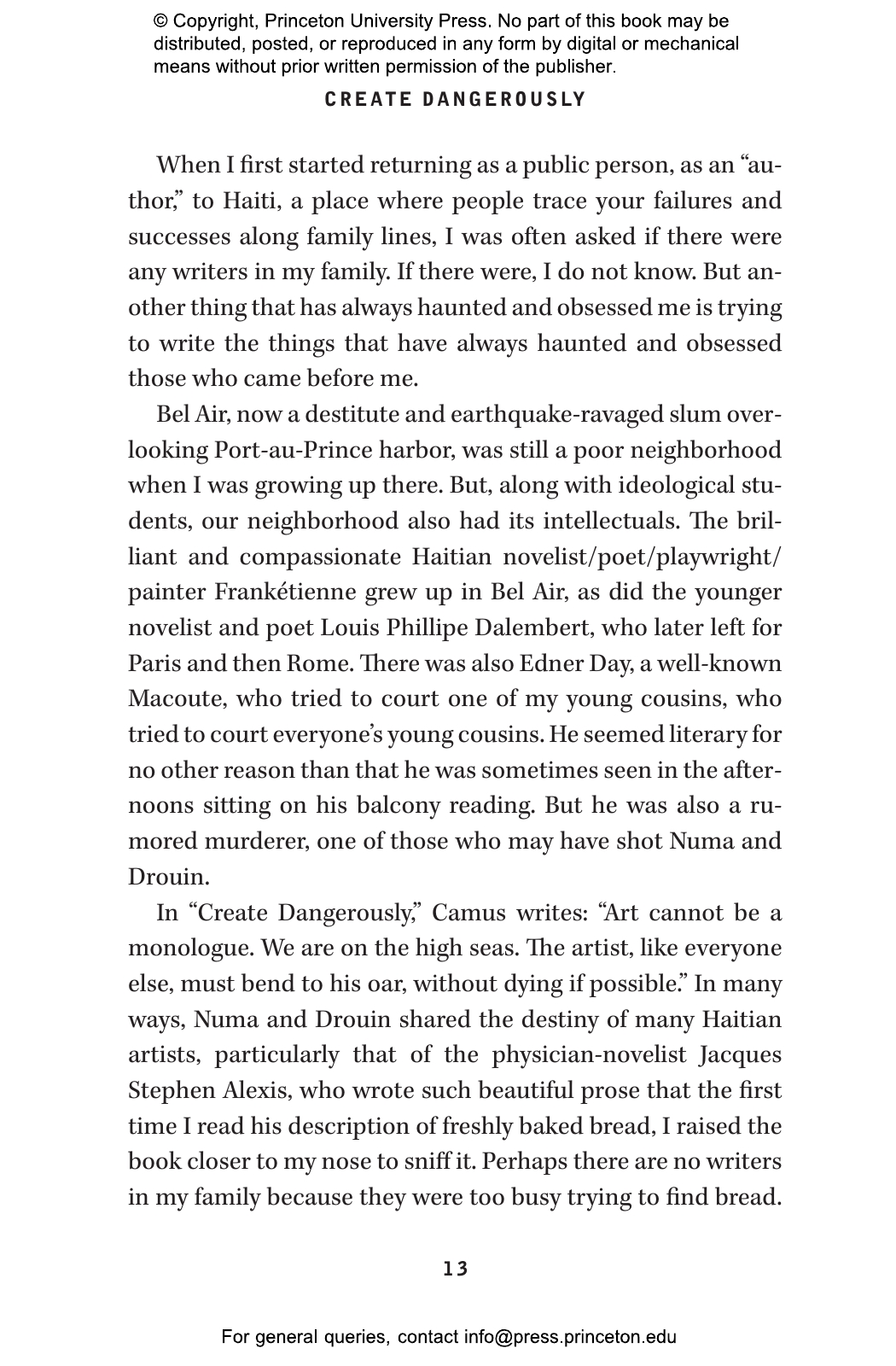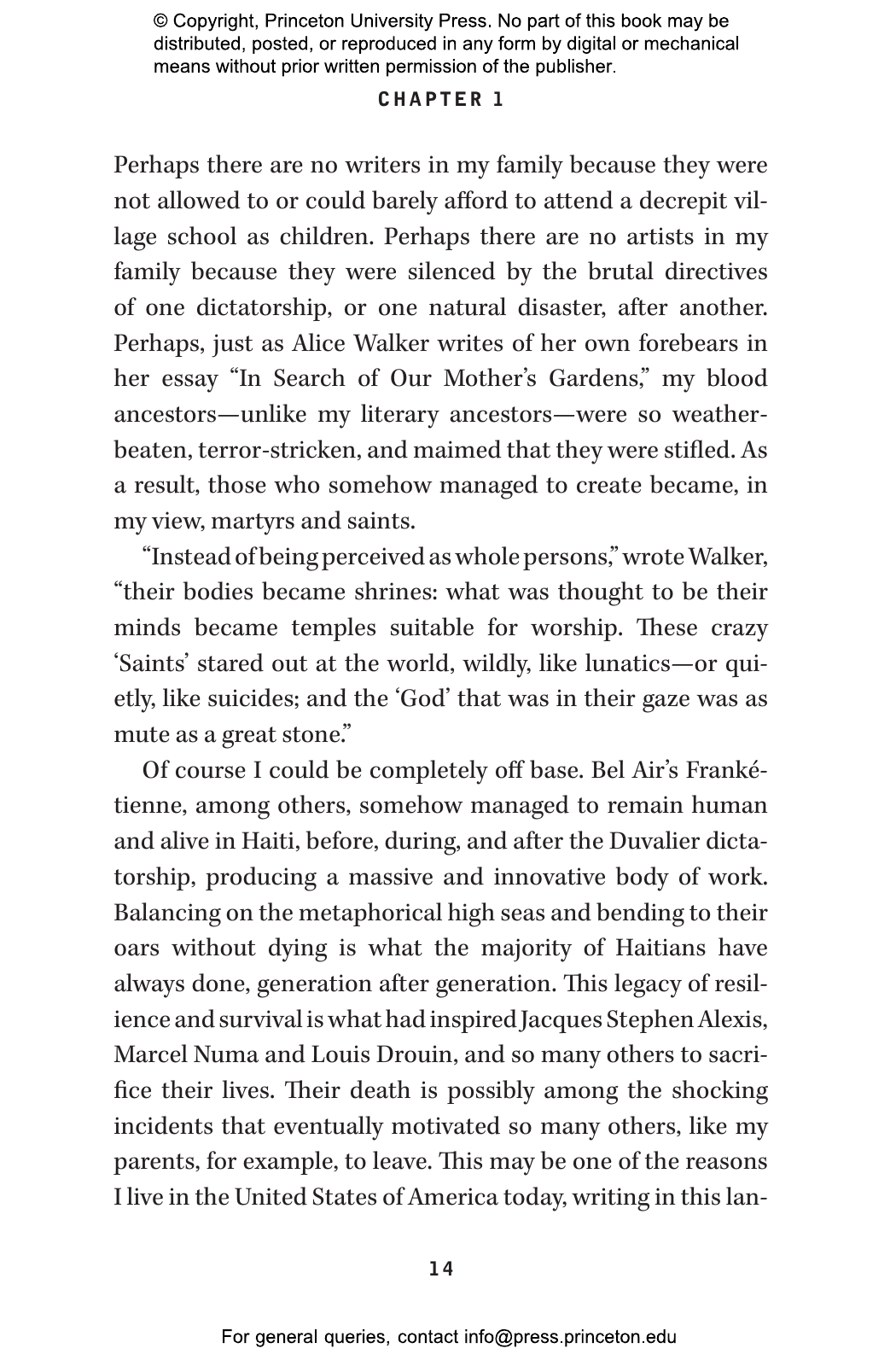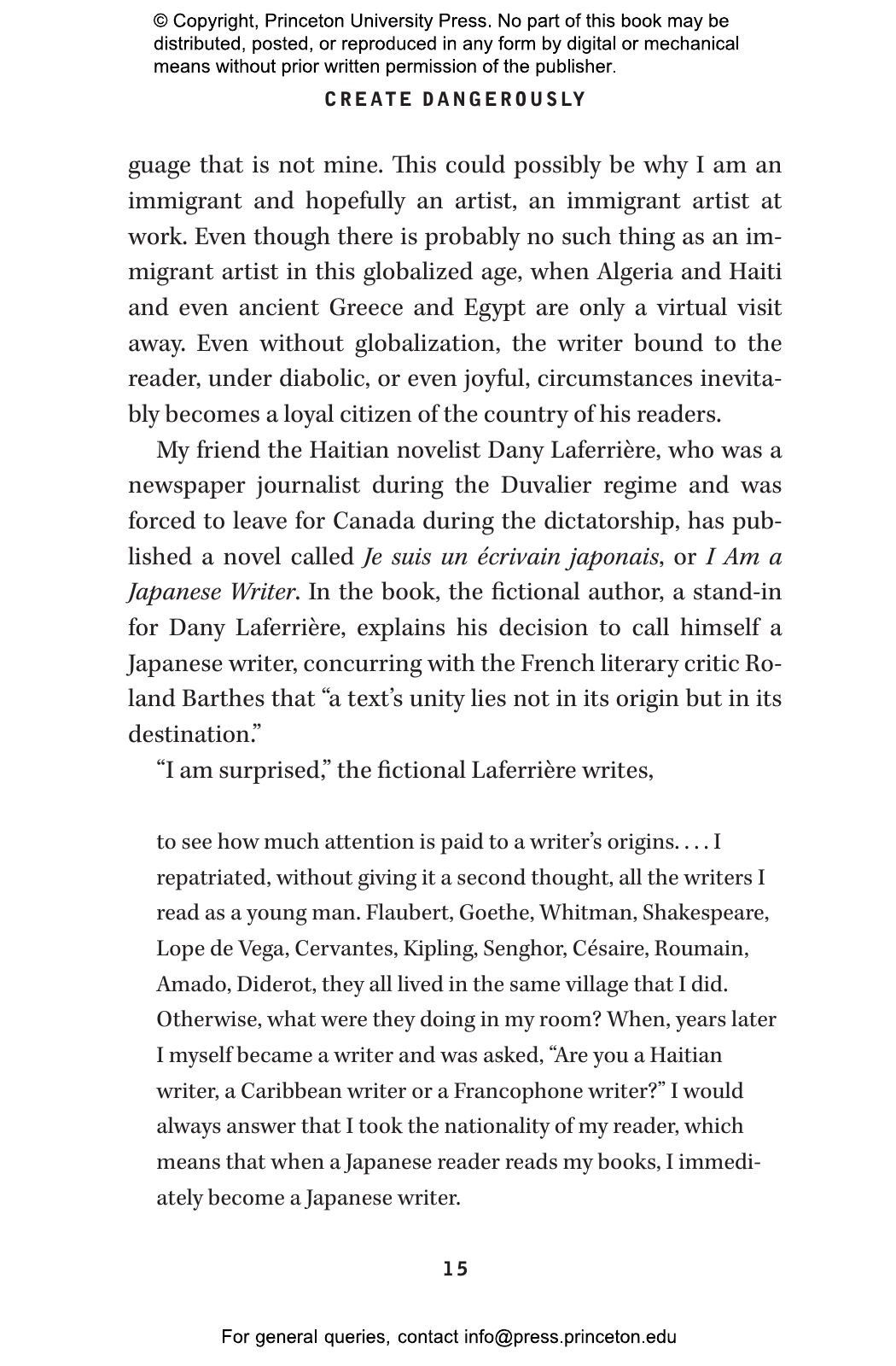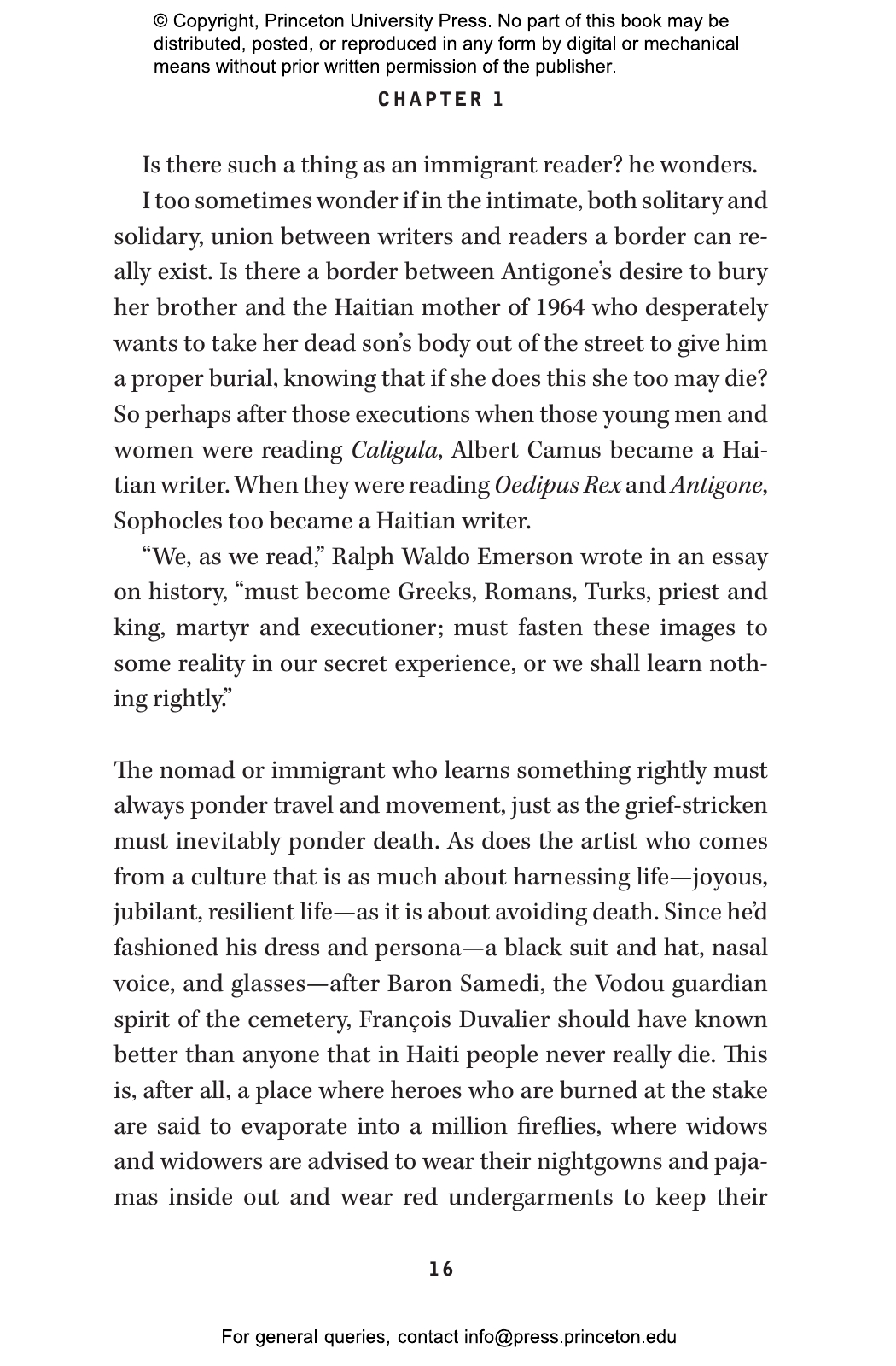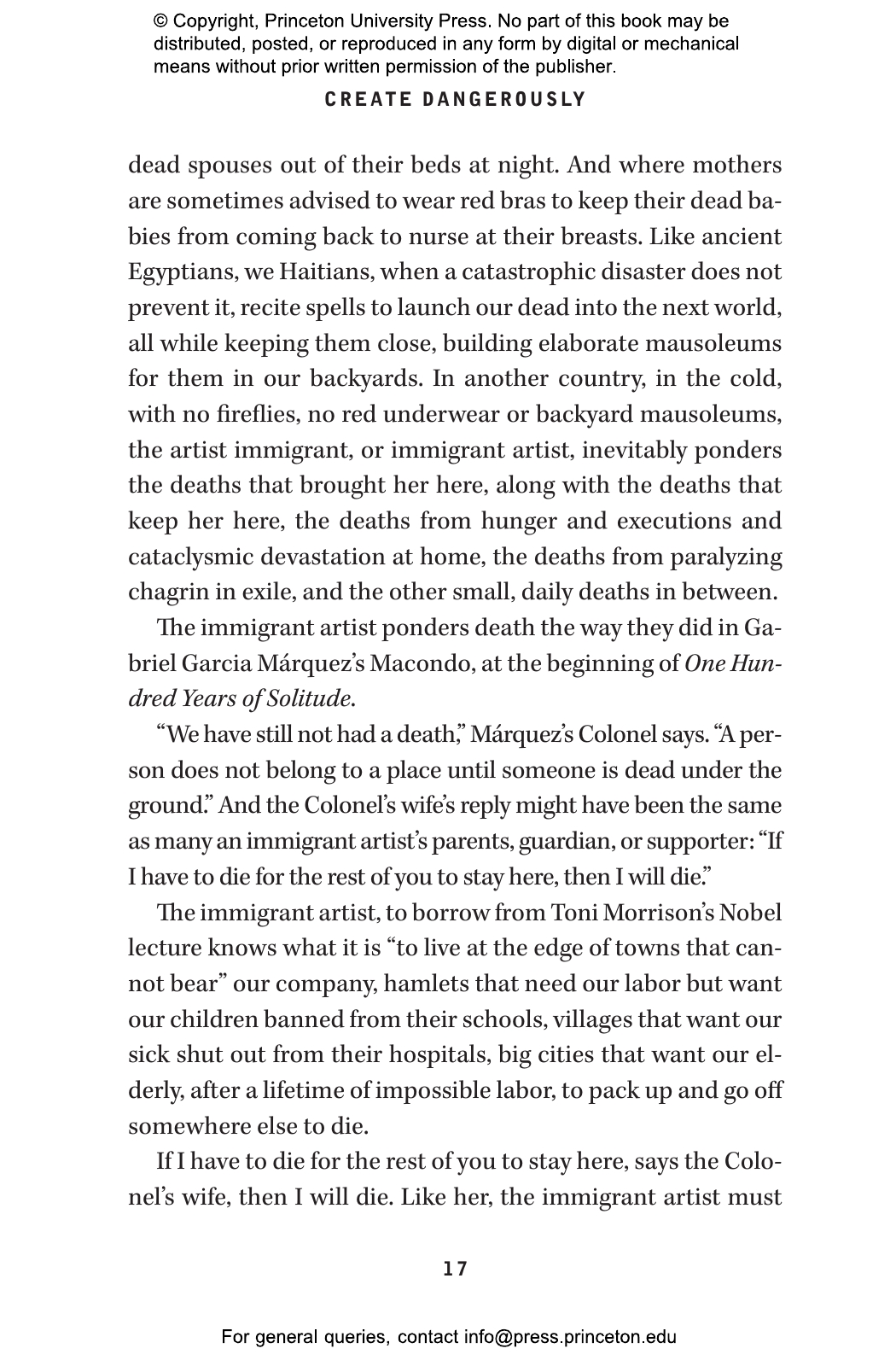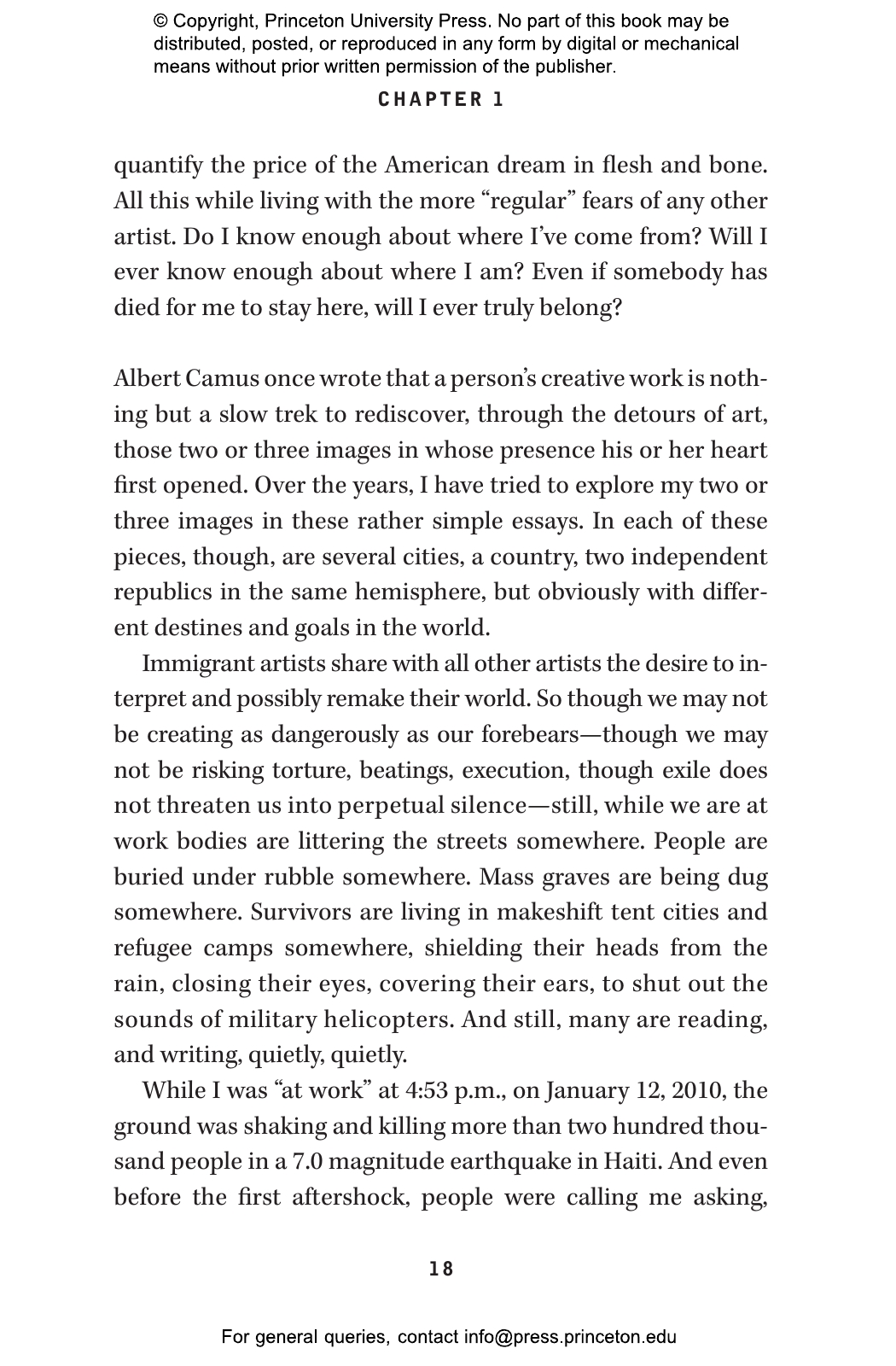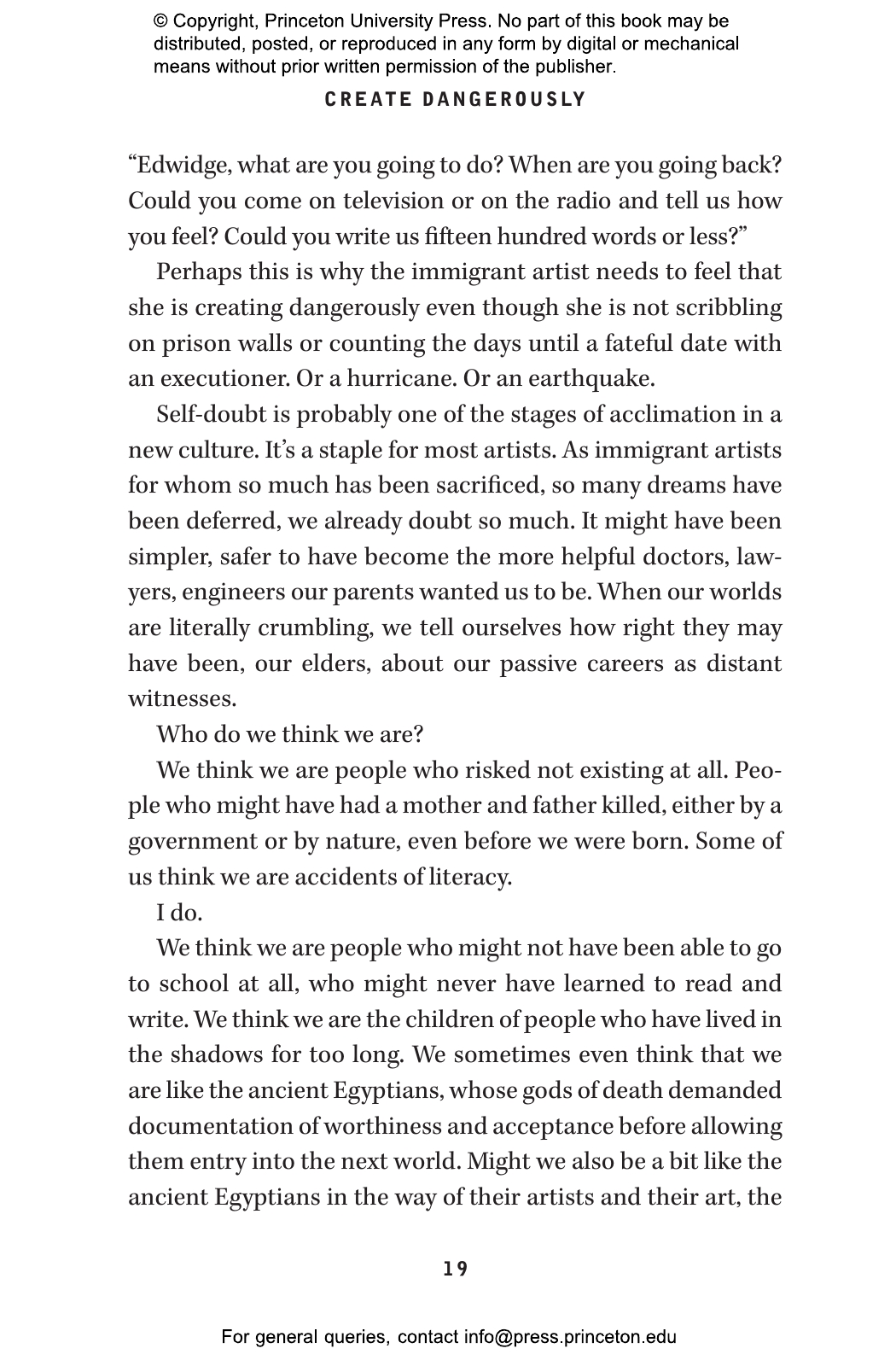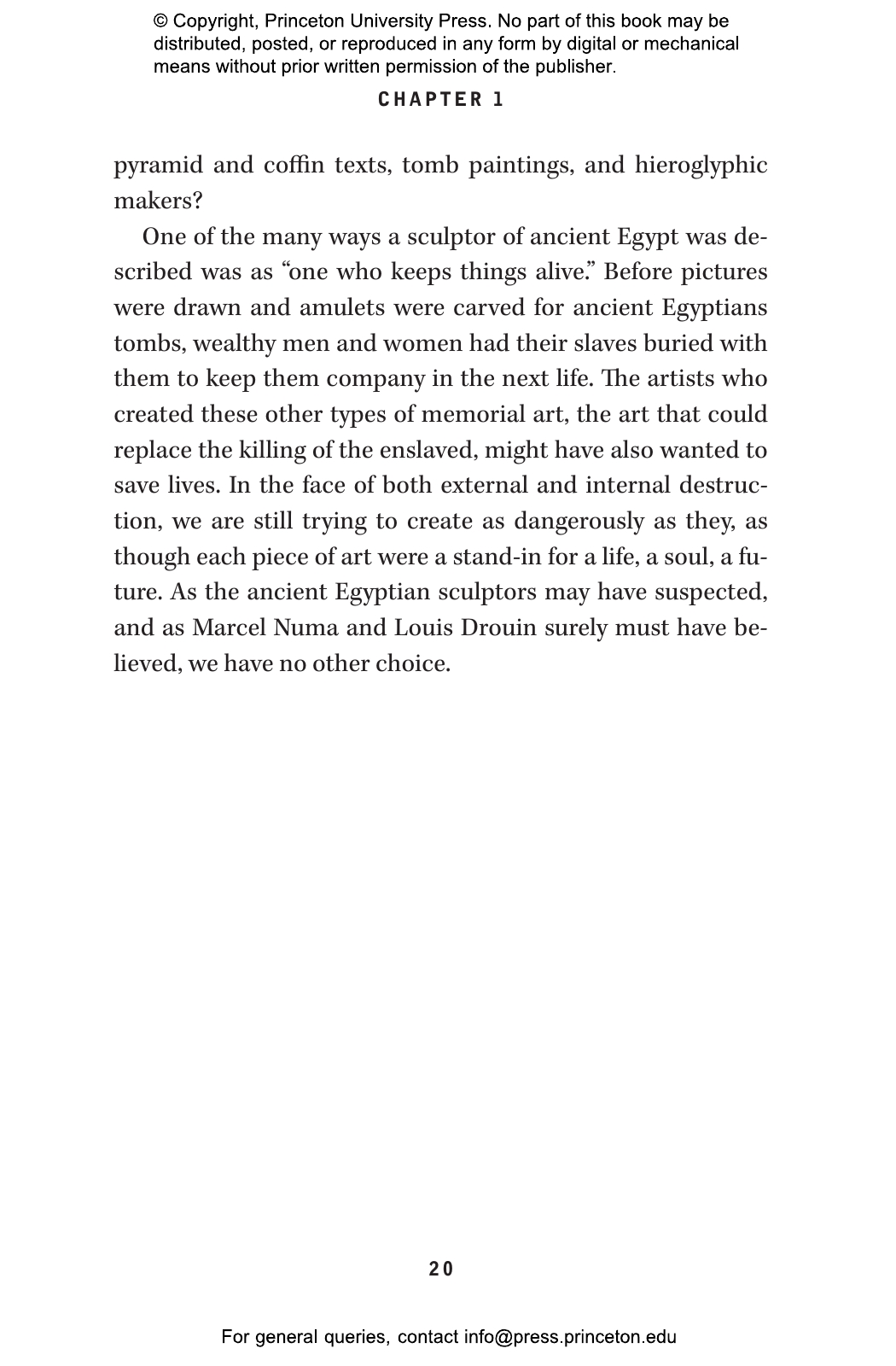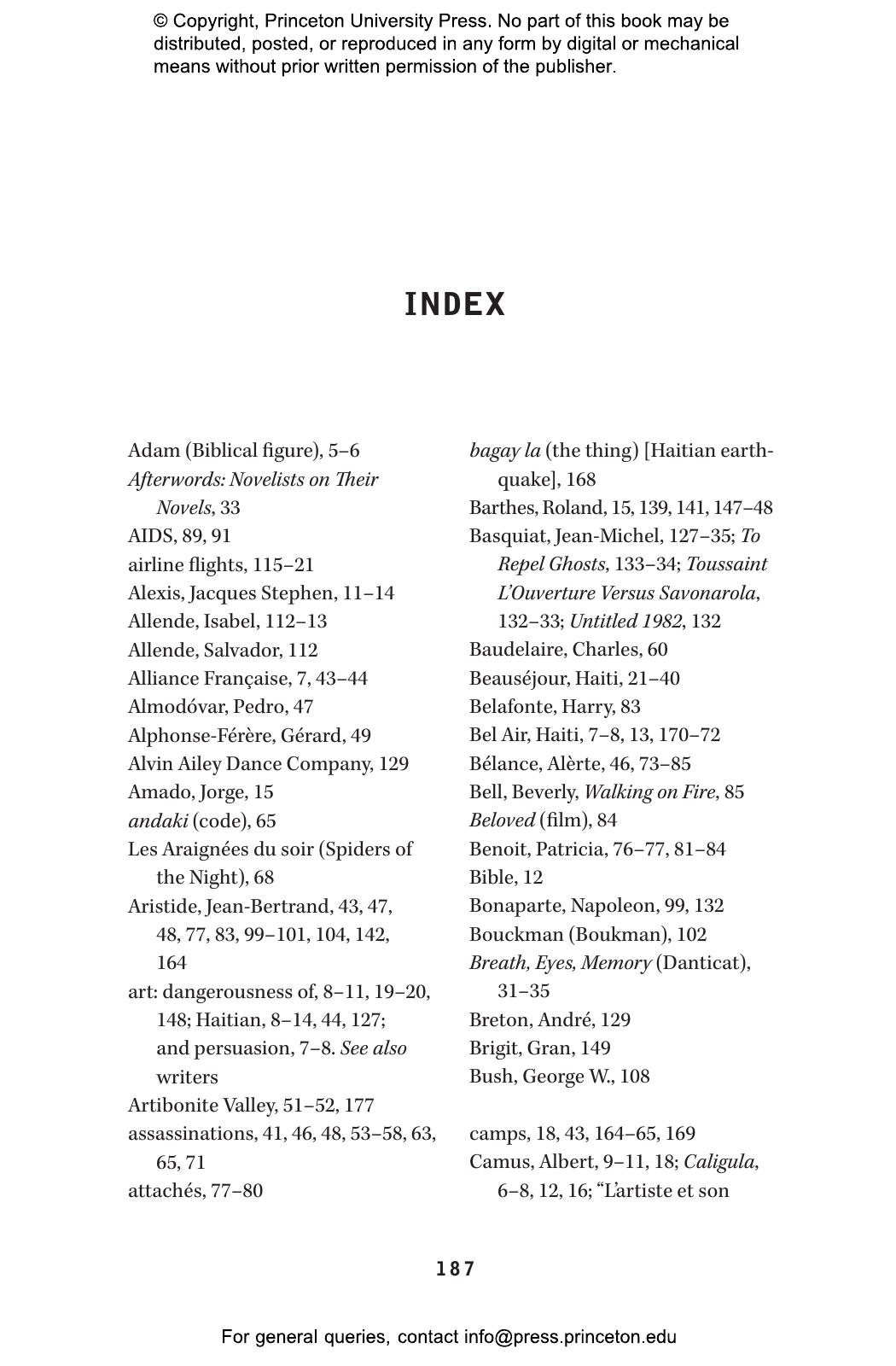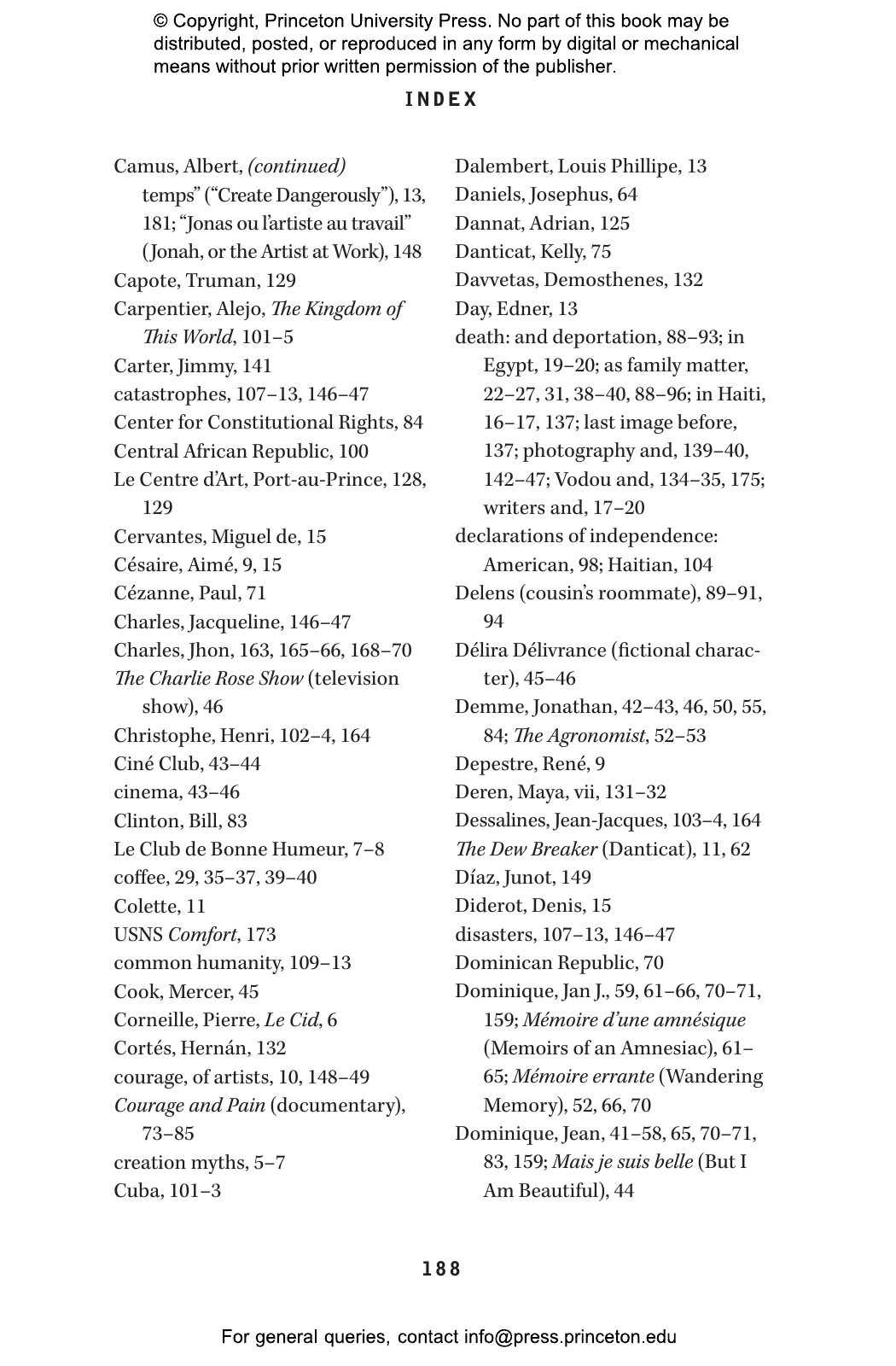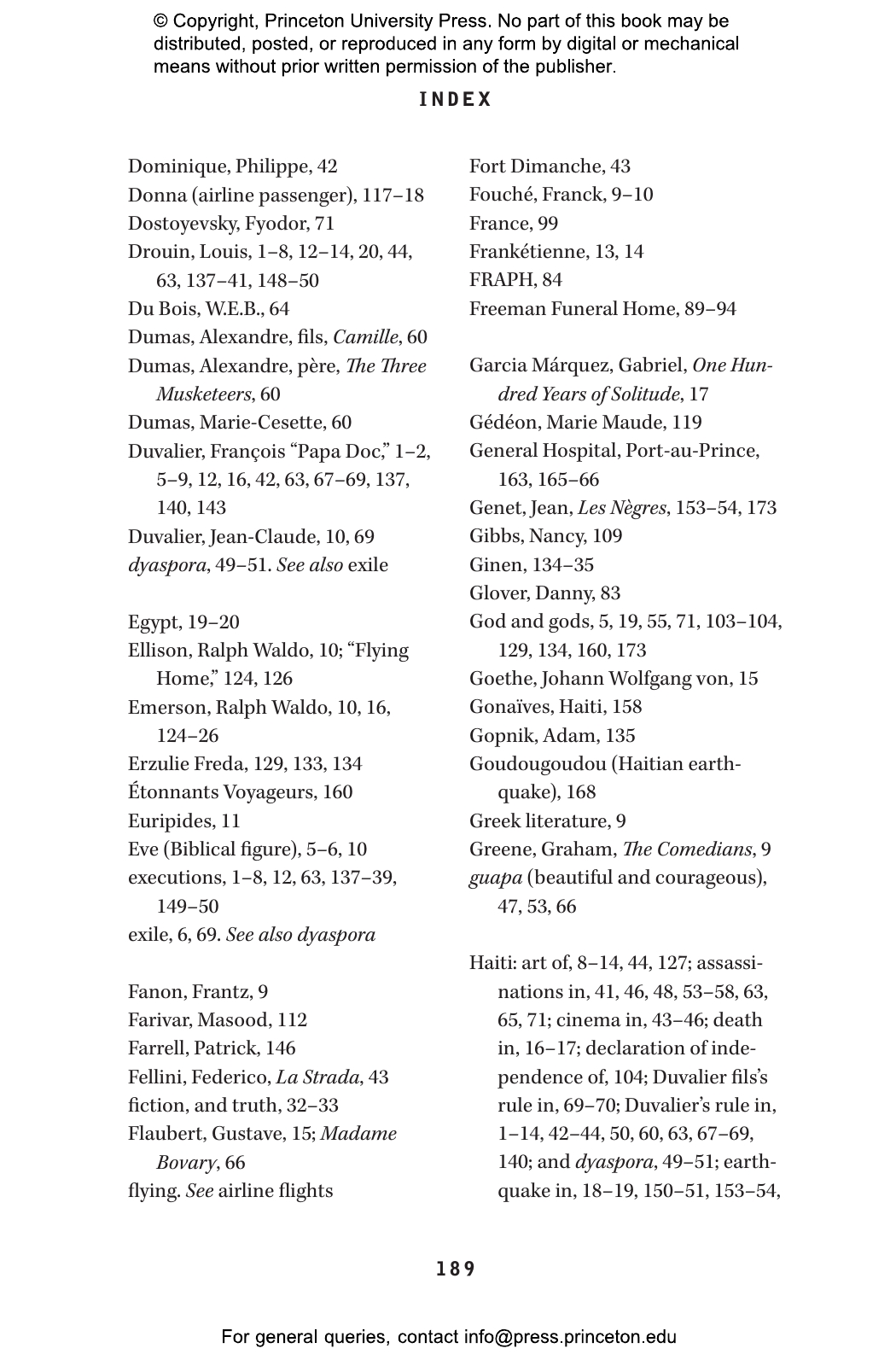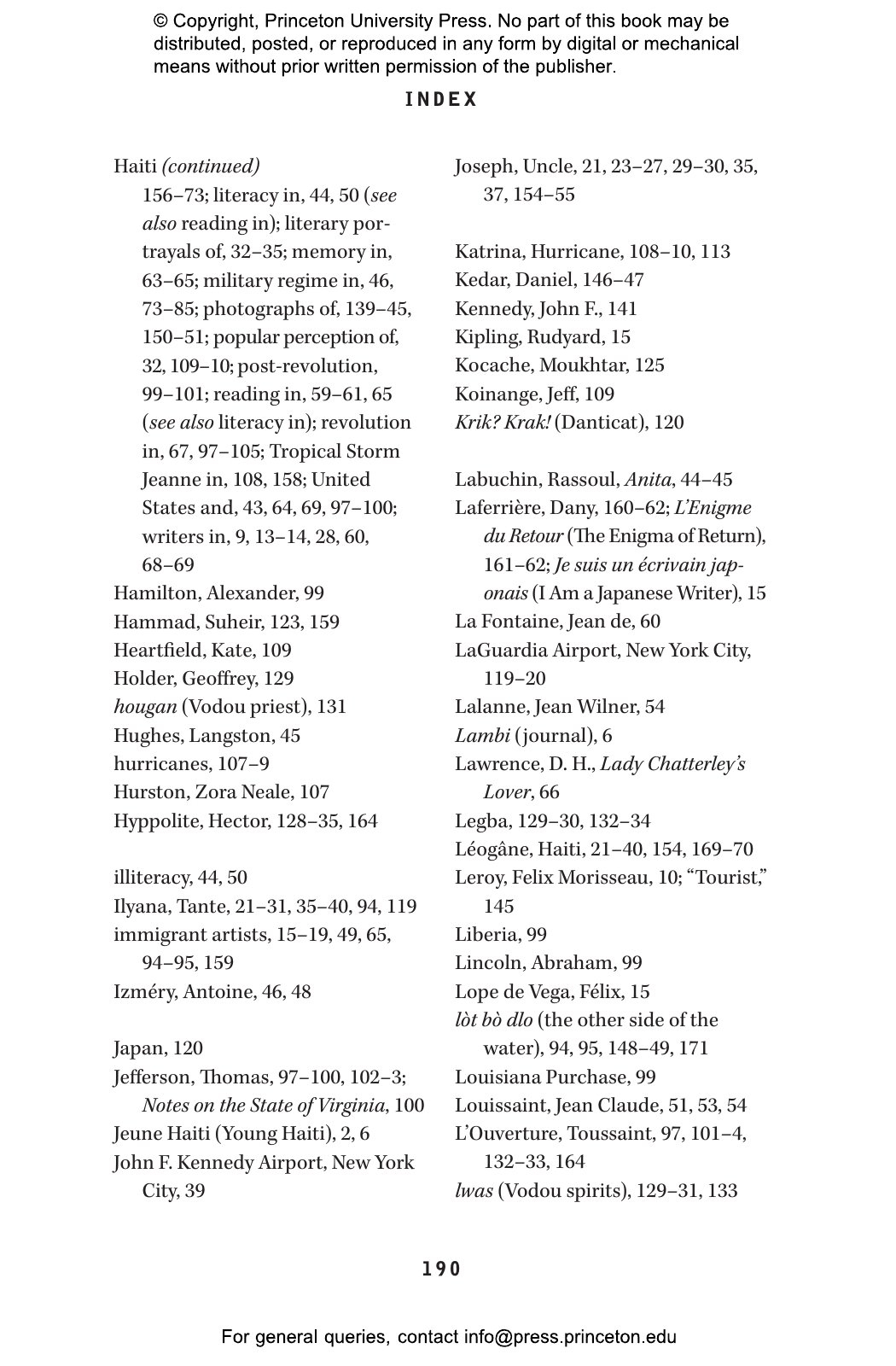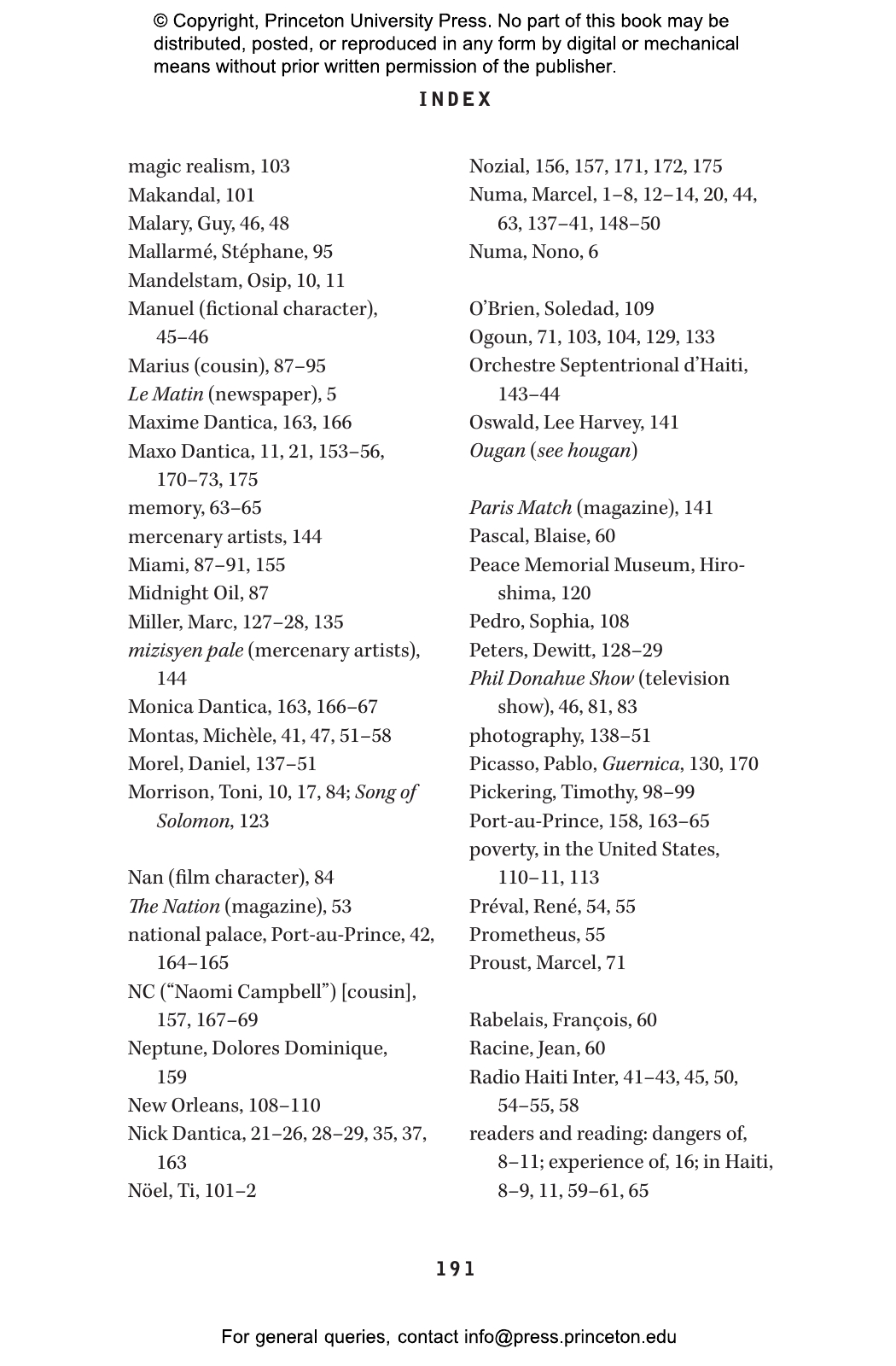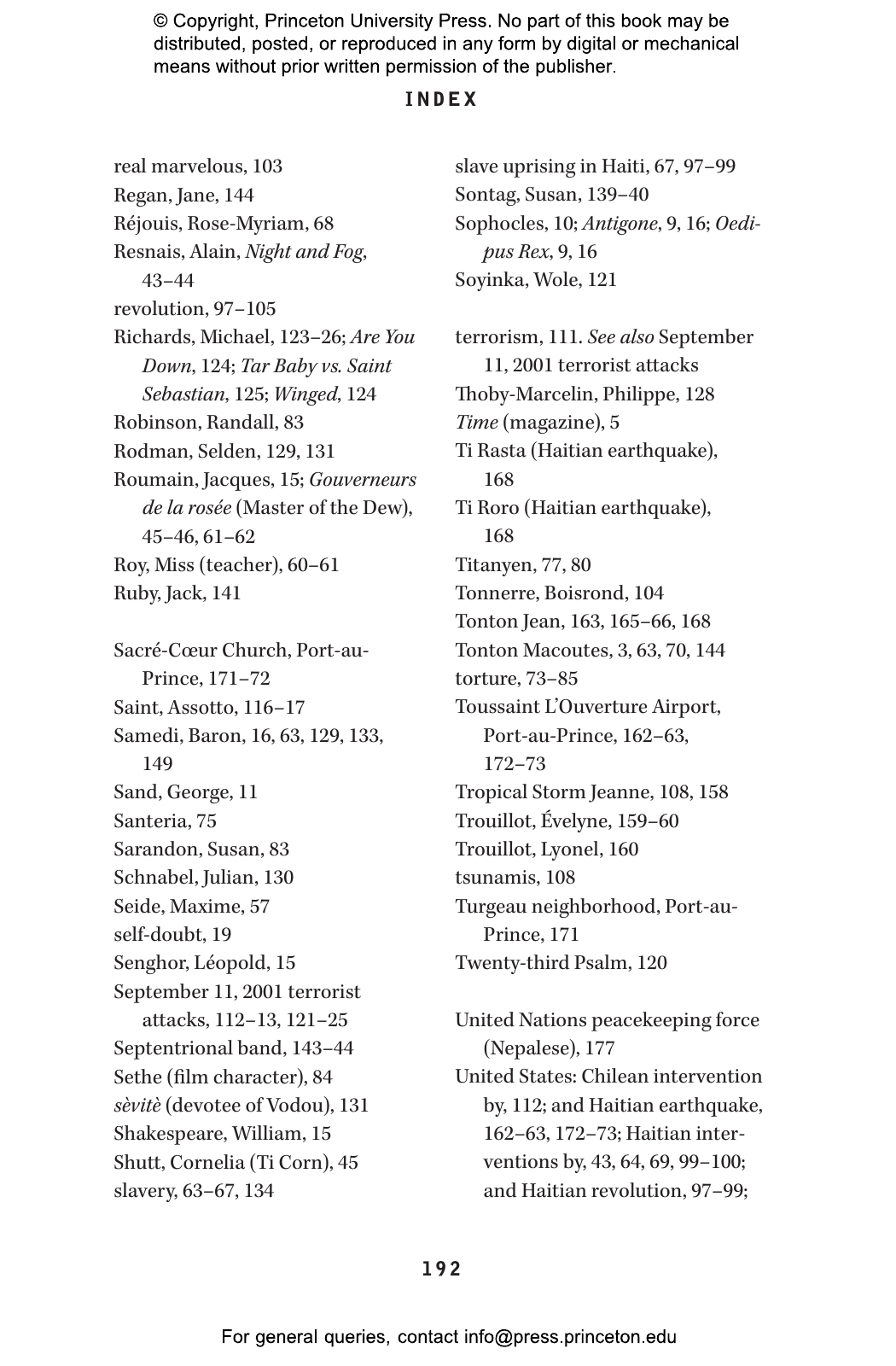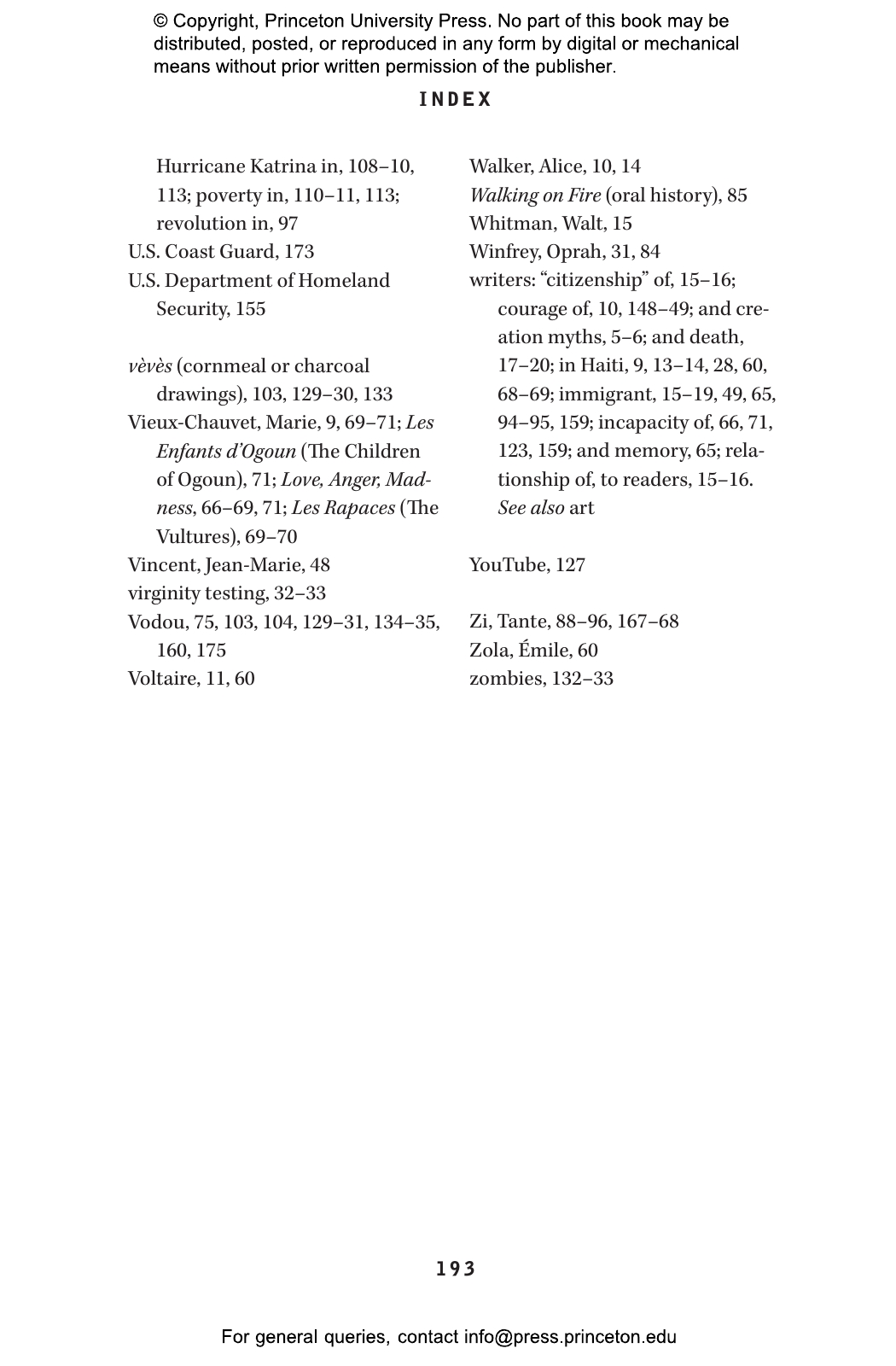“Create dangerously, for people who read dangerously. This is what I’ve always thought it meant to be a writer. Writing, knowing in part that no matter how trivial your words may seem, someday, somewhere, someone may risk his or her life to read them.”—Create Dangerously
In this deeply personal book, the celebrated Haitian-American writer Edwidge Danticat reflects on art and exile, examining what it means to be an immigrant artist from a country in crisis. Inspired by Albert Camus’ lecture, “Create Dangerously,” and combining memoir and essay, Danticat tells the stories of artists, including herself, who create despite—or because of—the horrors that drove them from their homelands.
She writes about the Haitian novelists she first read as a girl at the Brooklyn Public Library, Jean-Michel Basquiat and other artists of Haitian descent, and a renowned Haitian radio journalist whose political assassination shocked the world. She also eulogizes an aunt who guarded her family’s homestead in the Haitian countryside, a cousin who died of AIDS while living in Miami as an undocumented immigrant, and a Haitian woman mutilated in a machete attack who became a public witness against torture.
Create Dangerously is an eloquent and moving expression of Danticat’s belief that immigrant artists are obliged to bear witness when their countries of origin are suffering from violence, oppression, poverty, and tragedy.
"Astonishing. . . . Here, finally, is the book I’ve been searching for, the book I urge everyone to read about Haiti. . . . Heartening and heartrendingly beautiful."—Julia Alvarez, NPR
"Danticat's tender new book about loss and the unquenchable passion for homeland makes us remember the powerful material from which most fiction is wrought: it comes from childhood, and place. No matter her geographic and temporal distance from these, Danticat writes about them with the immediacy of love."—Amy Wilentz, New York Times Book Review
"Danticat writes with a compassionate insight but without a trace of sentimentality. Her prose is energetic, her vision is clear, the tragedies seemingly speaking for themselves."—Betsy Willeford, Miami Herald
"Danticat is a marvelous writer, blending personal anecdotes, history and larger reflections."—Sandip Roy, San Francisco Chronicle
"[Danticat's] mission as a writer has been to speak from the diaspora for Haiti's disfranchised. . . . Her unlettered Haitian relatives call her a jounalis, a journalist writing with a purpose. She doesn't let them down."—Amanda Heller, Boston Globe
"Powerful. [Danticat] acknowledges that the prospect of writing about tragedies and vanished cultures is a daunting one, yet she is not daunted: she accepts that by some accident she exists and has the power to create, and so she does."—TheNewYorker.com
"Danticat's prose is spare and piercing; she doesn't waste words. Her ideas are never cloaked in layers of metaphor, yet every sentence has a lyrical, persuasive quality. . . . Stirring."—Jennifer Levin, Santa Fe New Mexican
"Whether she is profiling a courageous Haitian photojournalist, writing about a visit to relatives in a rural village, or meditating on the career of Jean-Michel Basquiat, Danticat is always also writing about her responsibilities as a part of what is called, in Creole, the dyaspora. . . . Thoughtful, powerful."—Adam Kirsch, Barnes and Noble Review
"[Danticat] avoids grandiose claims about the insightfulness of the exile—while honouring the complexity of the immigrant artist's role, with its precariousness and its drive to make connections."—Scott McLemee, The National
"What is best in this collection are the vivid portraits of the author's childhood in Haiti (and then as a book-obsessed teenager visiting the library in Brooklyn), intermingled with return journeys to visit relatives, collect sacks of coffee and observe the nation changing."—Steven Poole, The Guardian
"In Danticat's many remarkable stories and pensées from the gut, one locates the inimitable power of truth. Authorship becomes an act of subversion when one's words might be read and acted on by someone risking his or her life if only to read them."—Publishers Weekly
"Danticat's writing is crisp and clear. . . . Not just another writer's book about writing, this volume delves into the suffering that affects artists who suspend themselves from time and place to create."—Library Journal
"This is the most powerful book I've read in years. Though delicate in its prose and civil in its tone, it hits like a freight train. It's a call to arms for all immigrants, all artists, all those who choose to bear witness, and all those who choose to listen. And though it describes great upheaval, tragedy, and injustice, it's full of humor, warmth, grace, and light."—Dave Eggers, author of Zeitoun and What Is the What
"Edwidge Danticat is a great literary artist. She is also a grand cultural critic whose wisdom and compassion loom large in this magnificent book."—Cornel West, 91ĚŇÉ« University
"Edwidge Danticat's prose has a Chekhovian simplicity—an ability to state the most urgent truths in a measured and patiently plain style that gathers a luminous energy as it moves inexorably forward. In this book she makes a strong case that art, for immigrants from countries where human rights and even survival are often in jeopardy, must be a vocation to witness if it is not to be an idle luxury."—Madison Smartt Bell, author of Toussaint Louverture: A Biography
Create Dangerously is an intelligent and passionate book on the role of the immigrant artist. As in her fiction, the lucidity and humility of Edwidge Danticat's prose has a quiet force. This book is as much a testimonial to the spirit of resistance and defiance as it is an elegy for those who have died and disappeared; it is as much a provocation to the artist as it is a book of mourning."—Saidiya V. Hartman, author of Lose Your Mother: A Journey Along the Atlantic Slave Route


